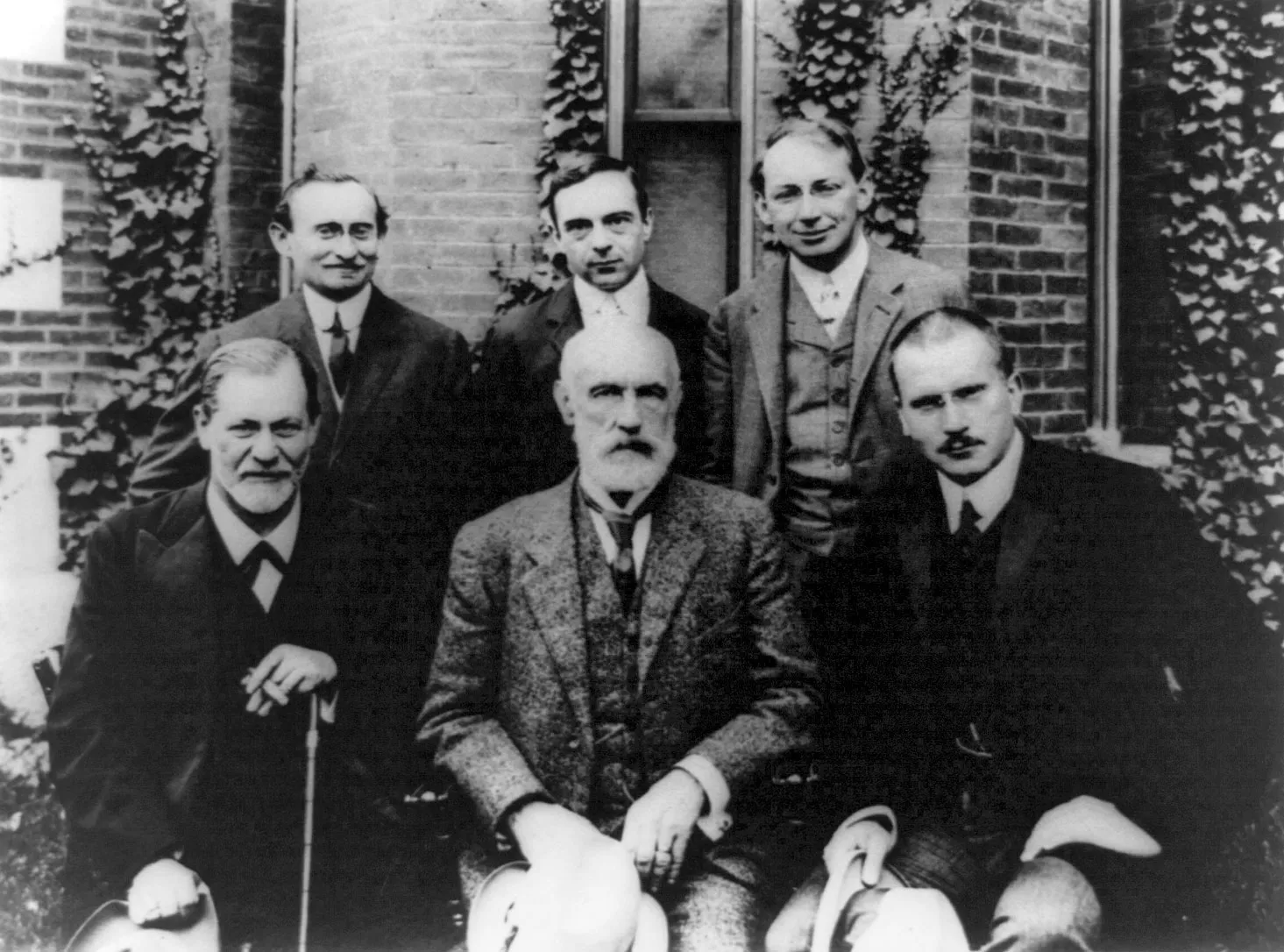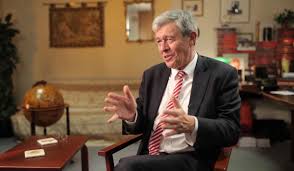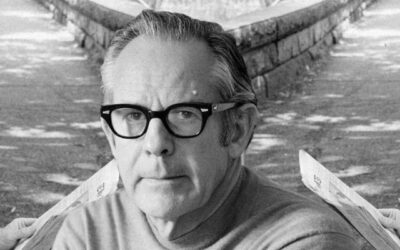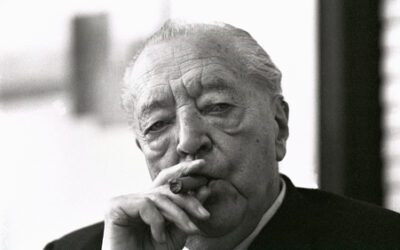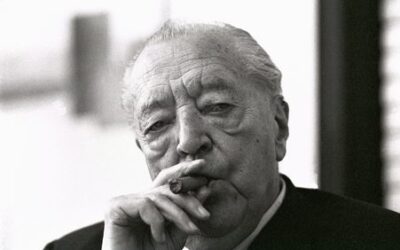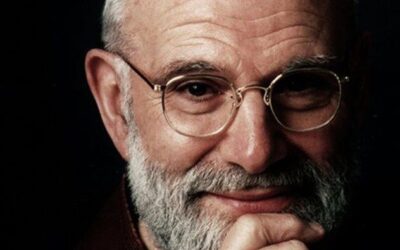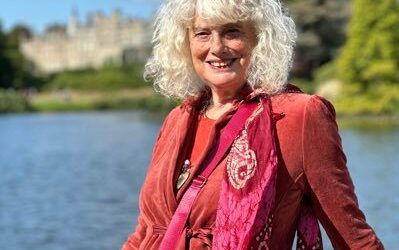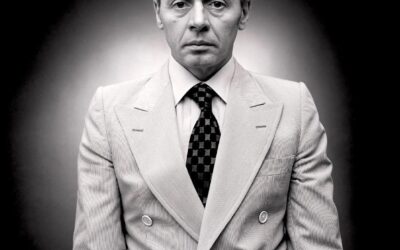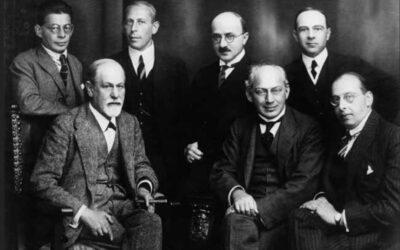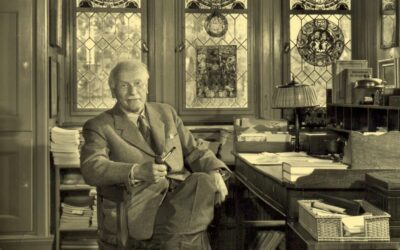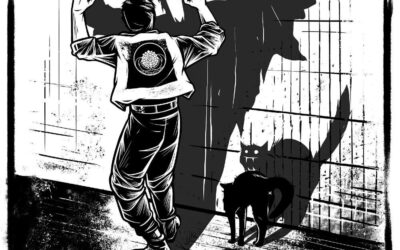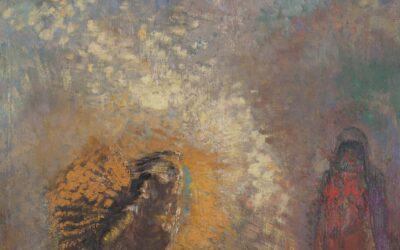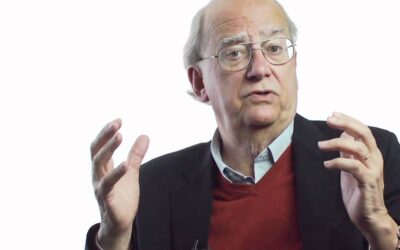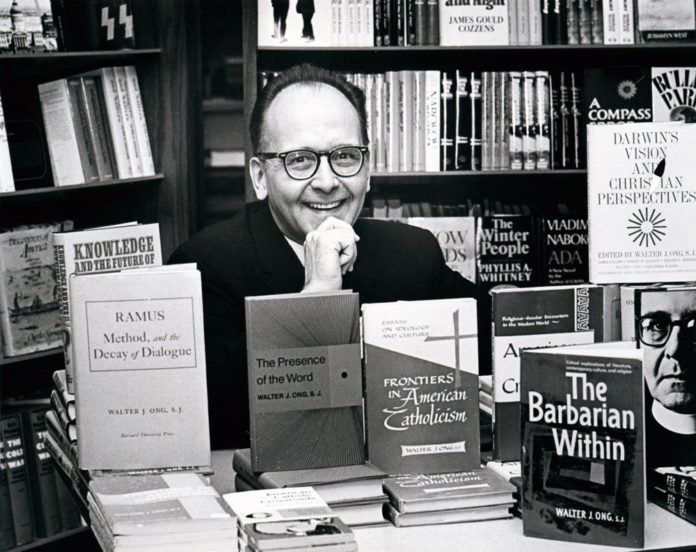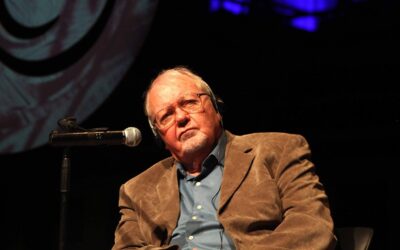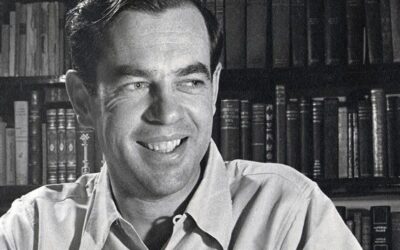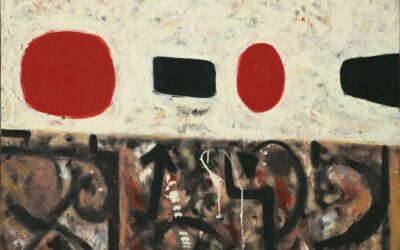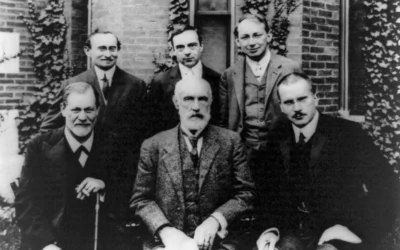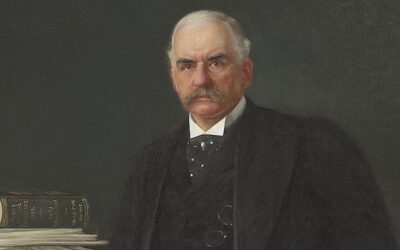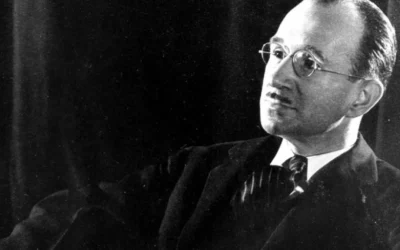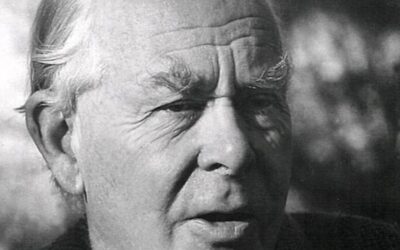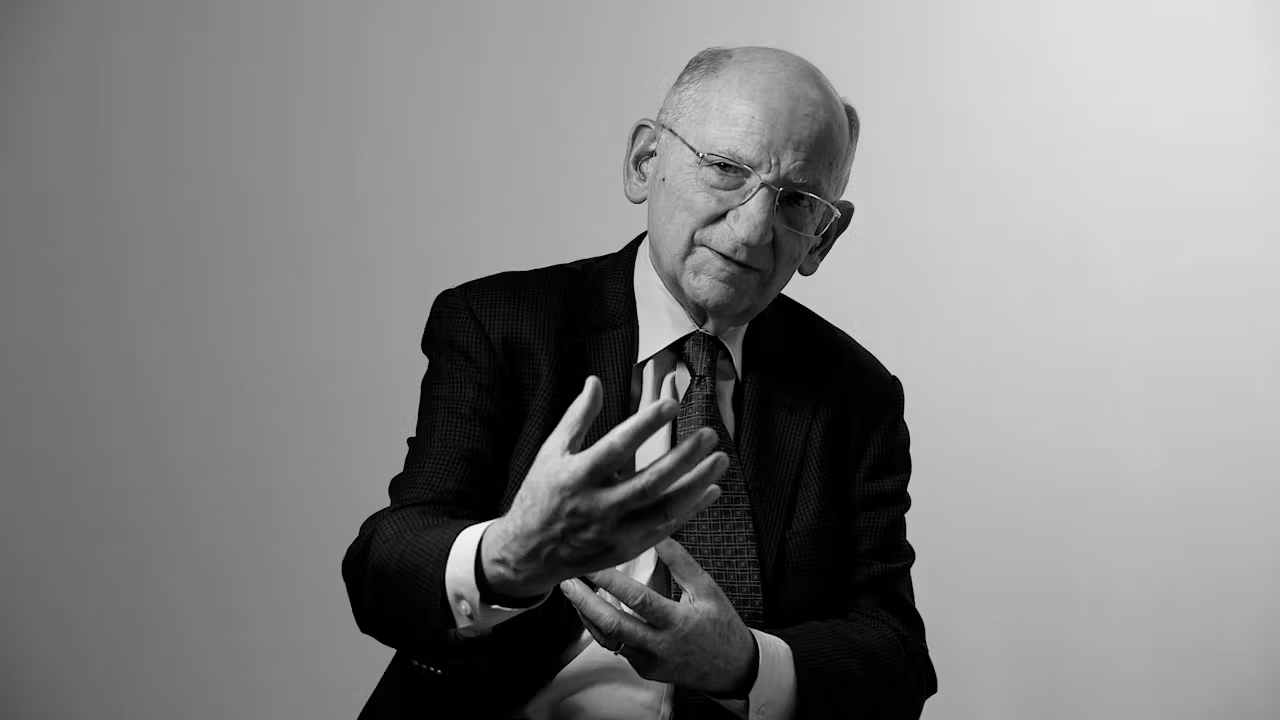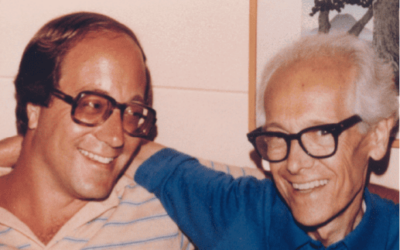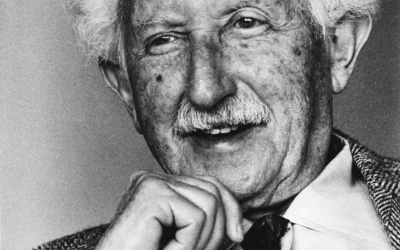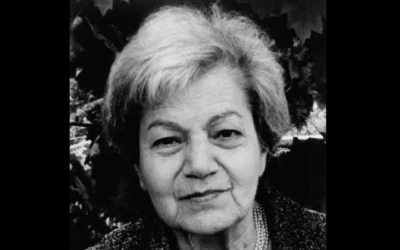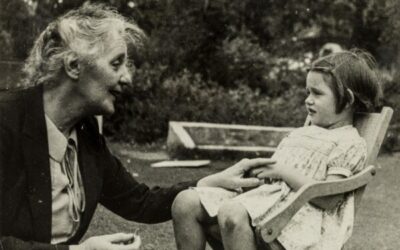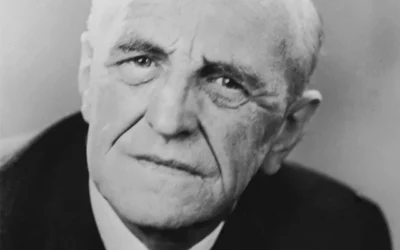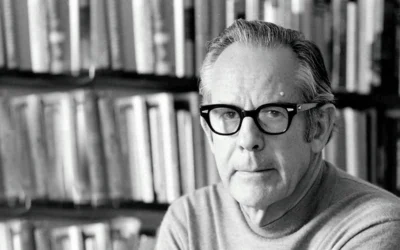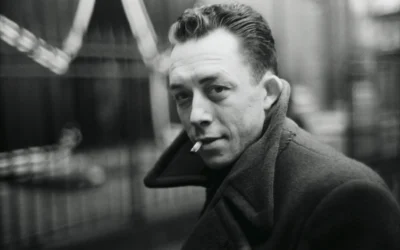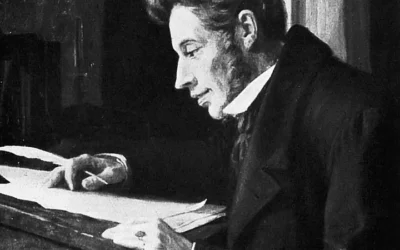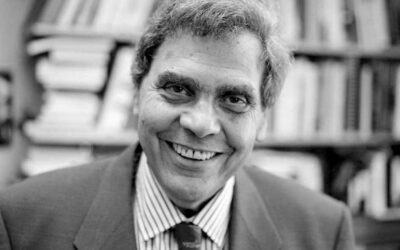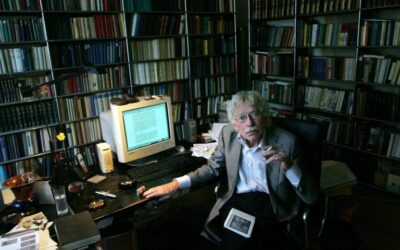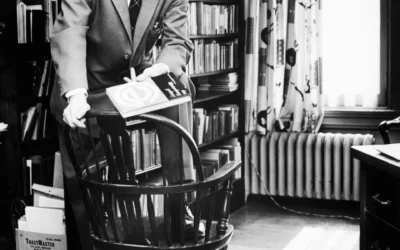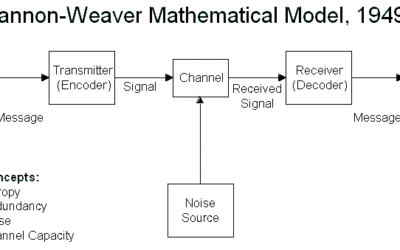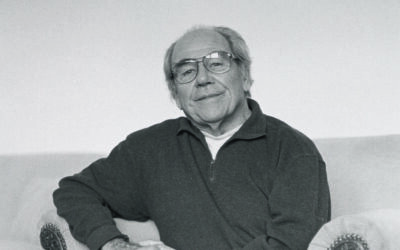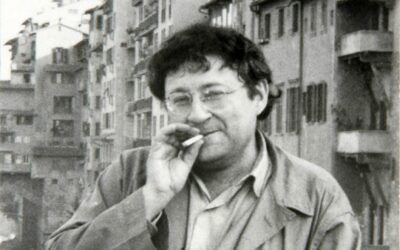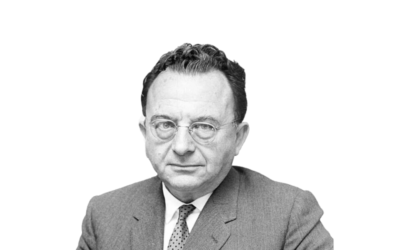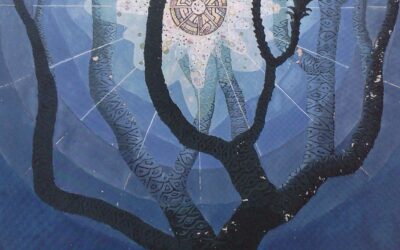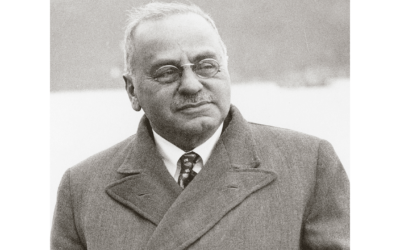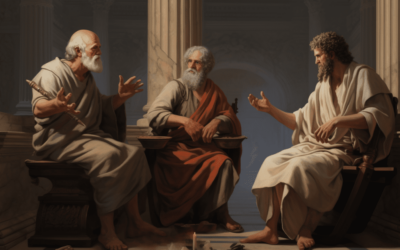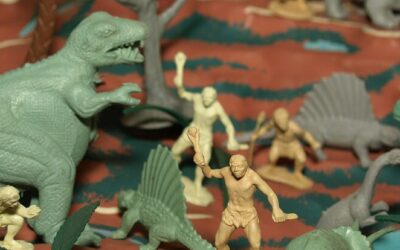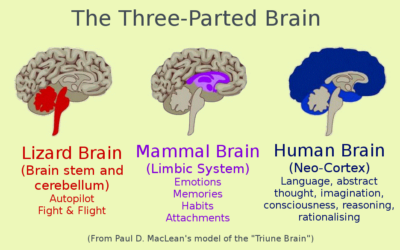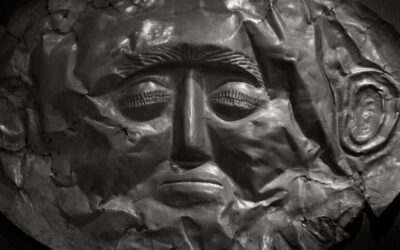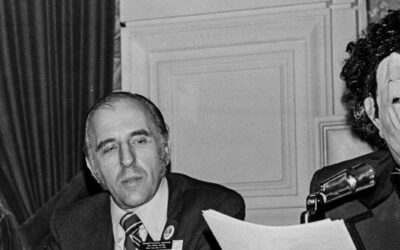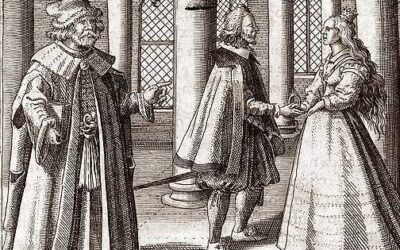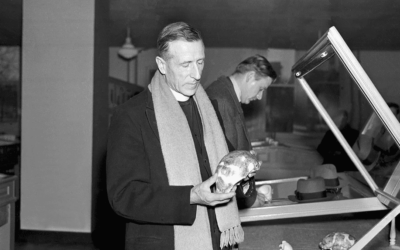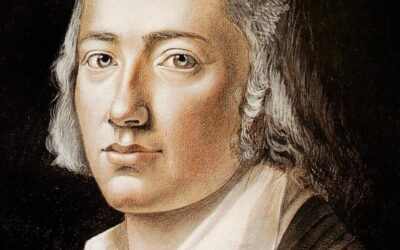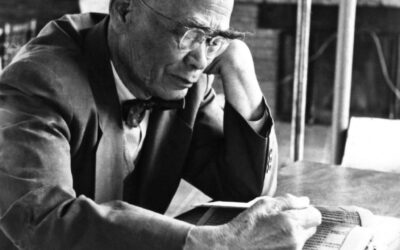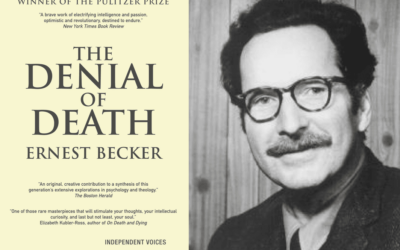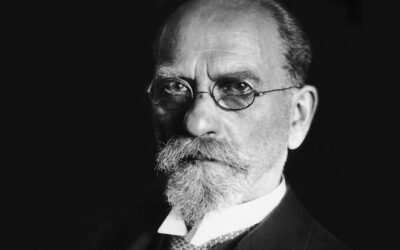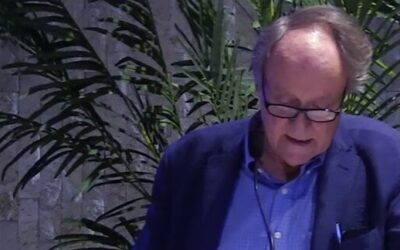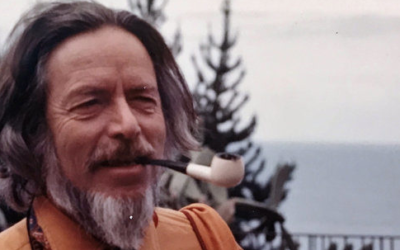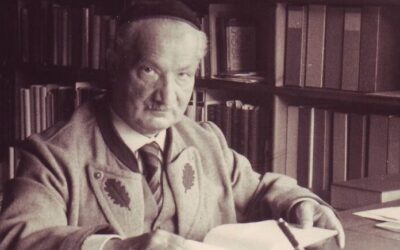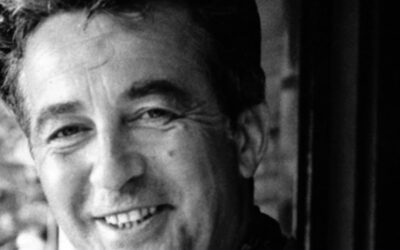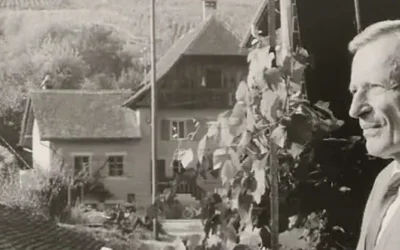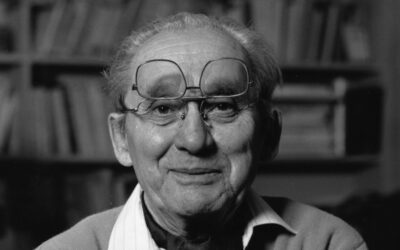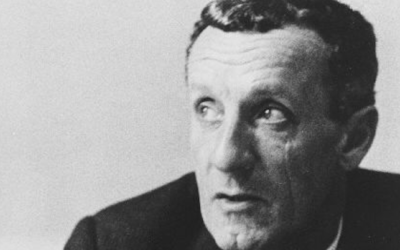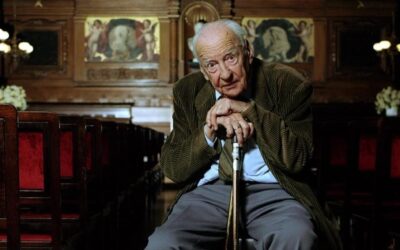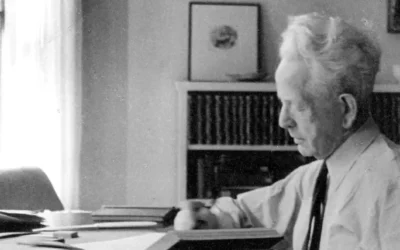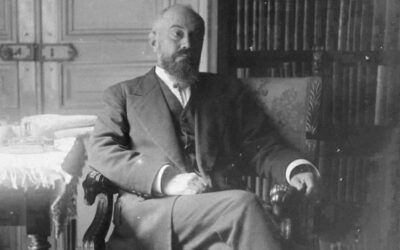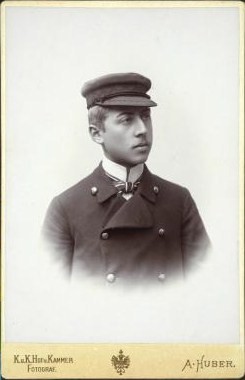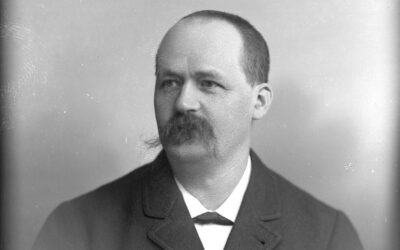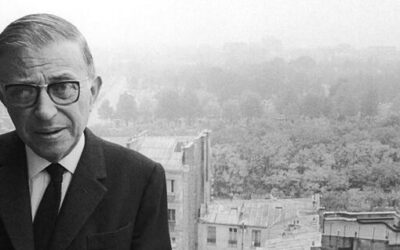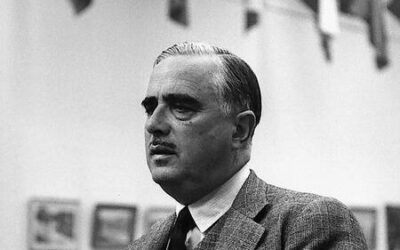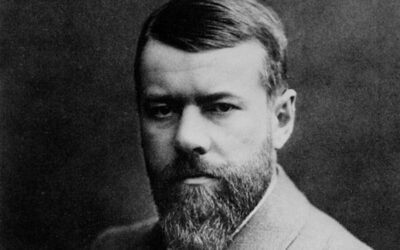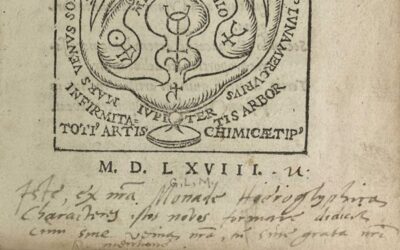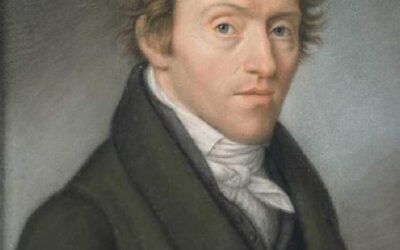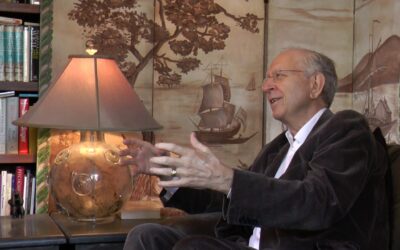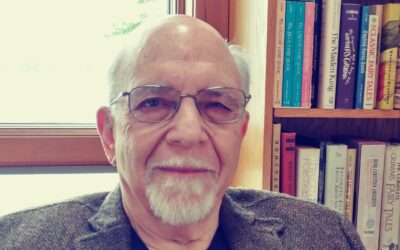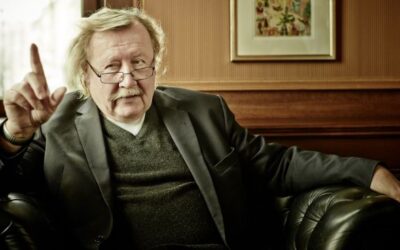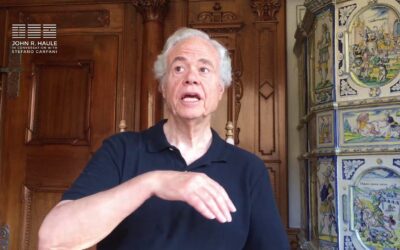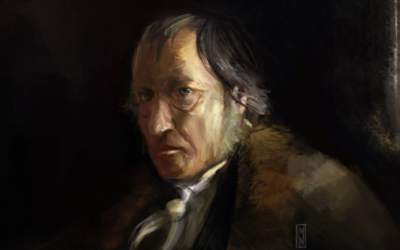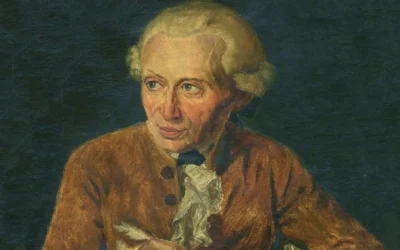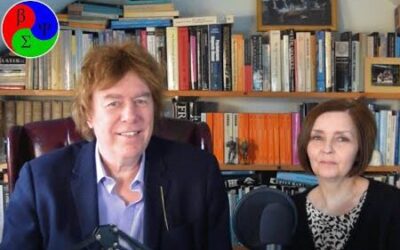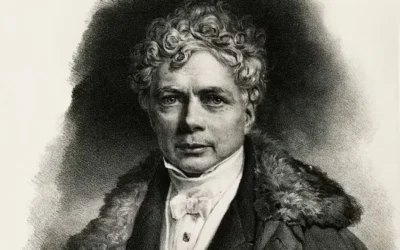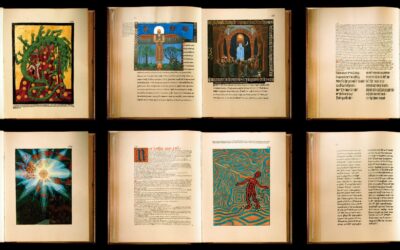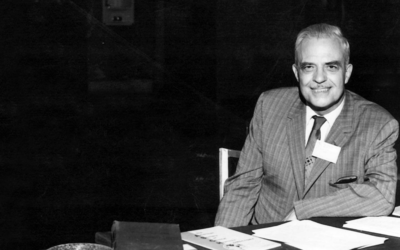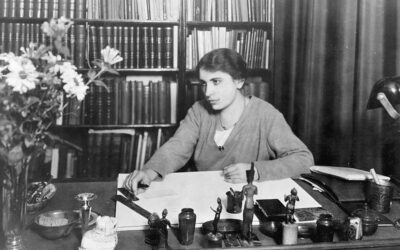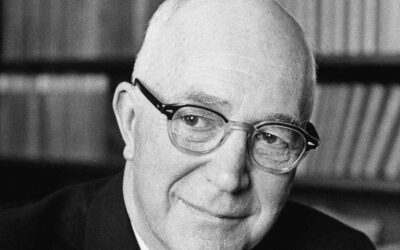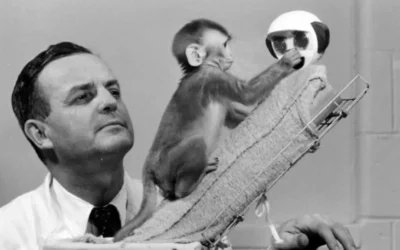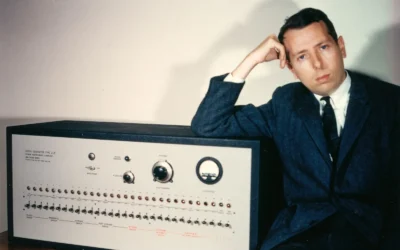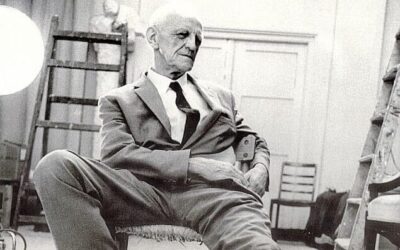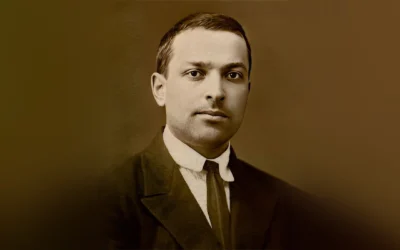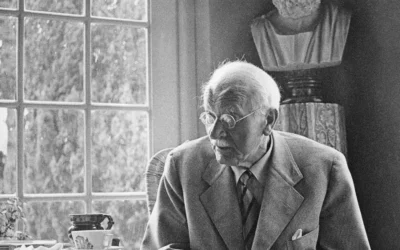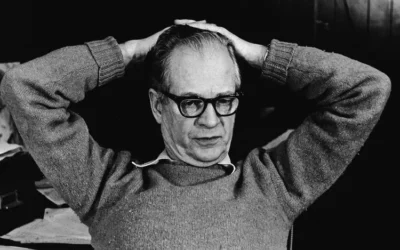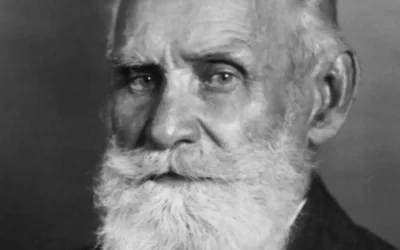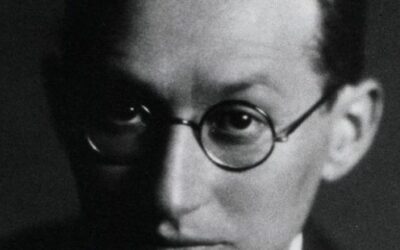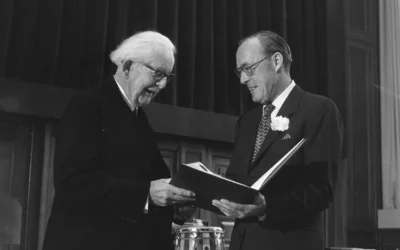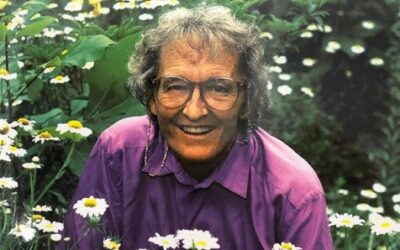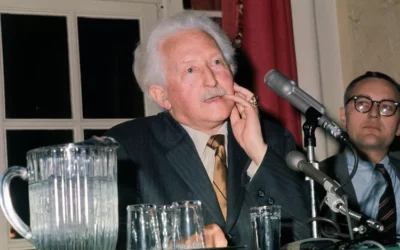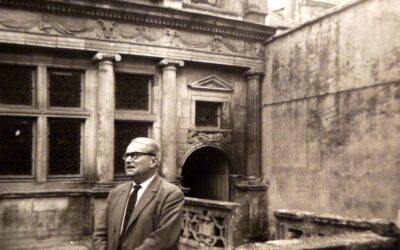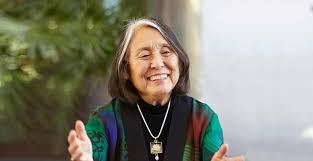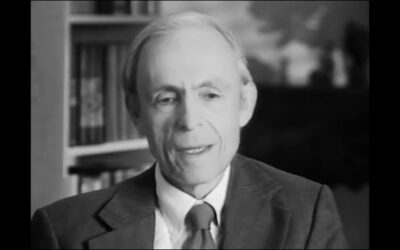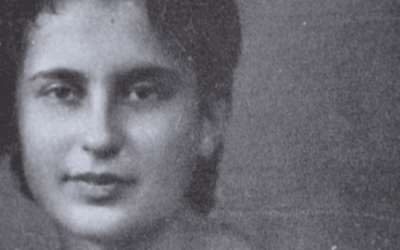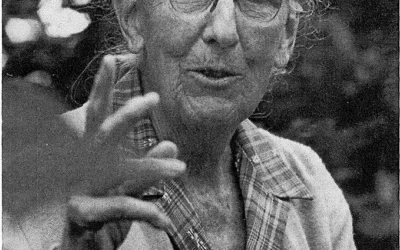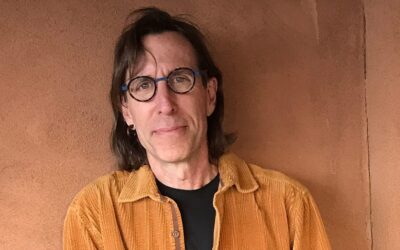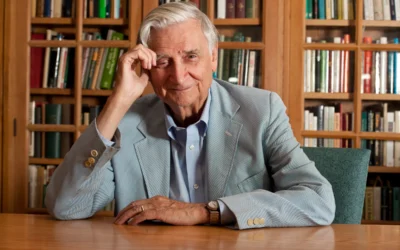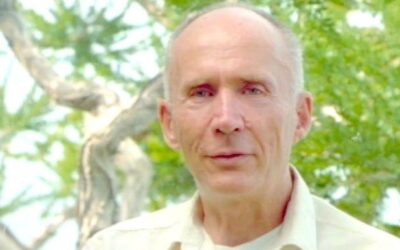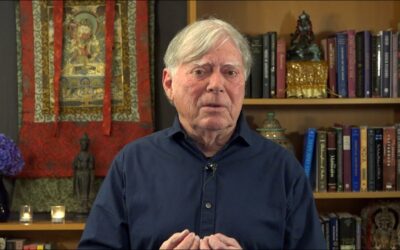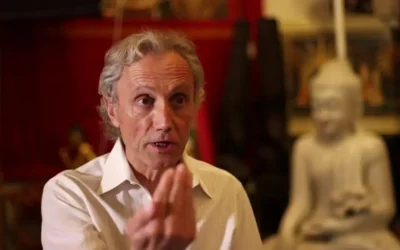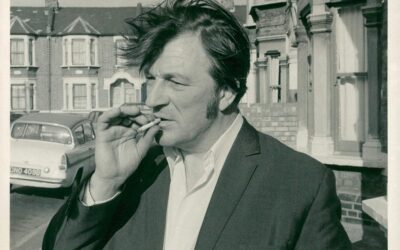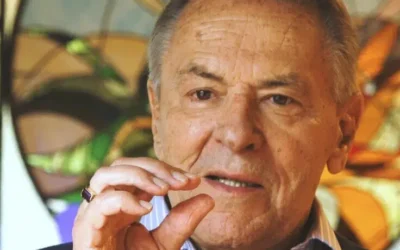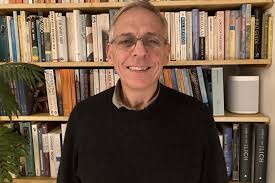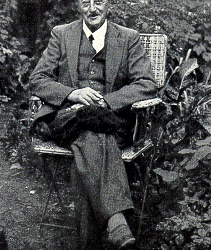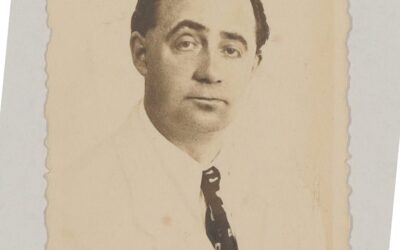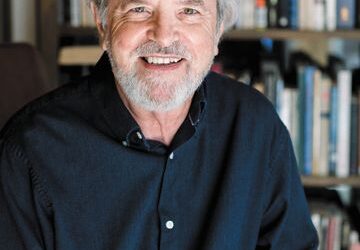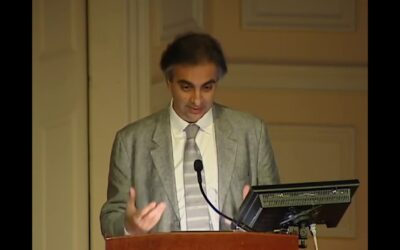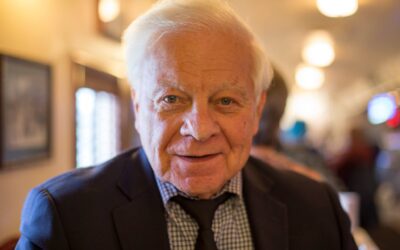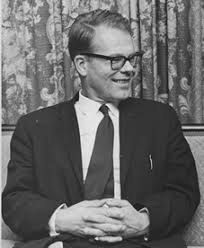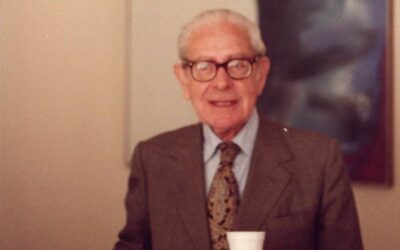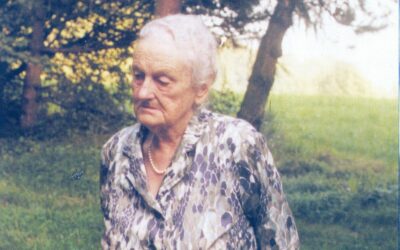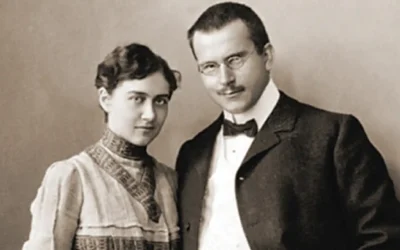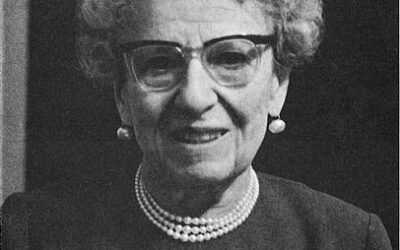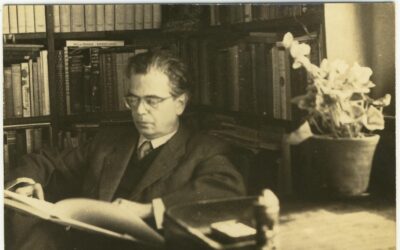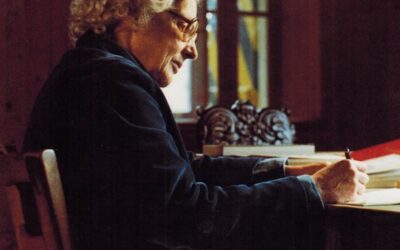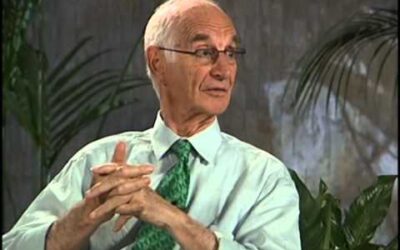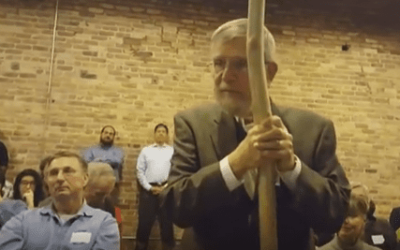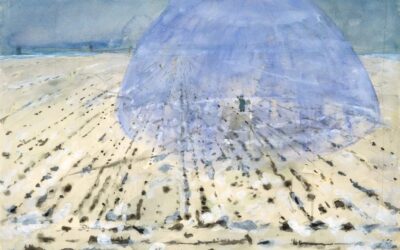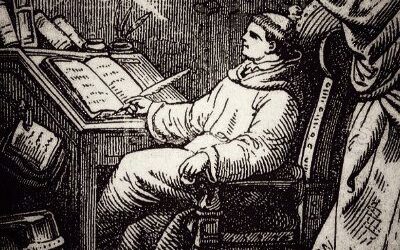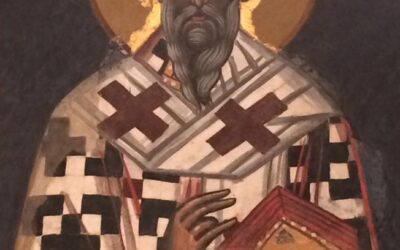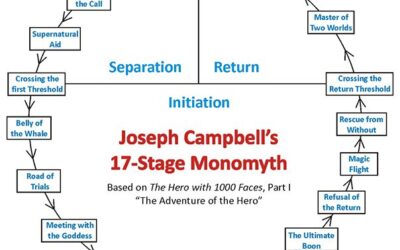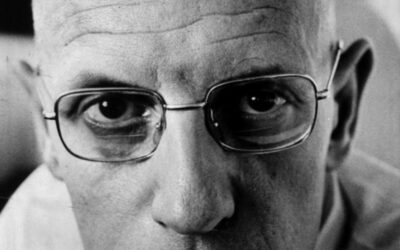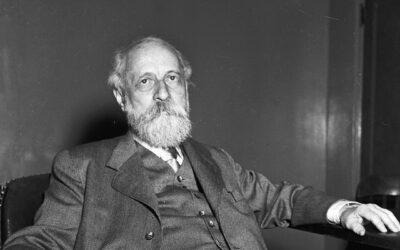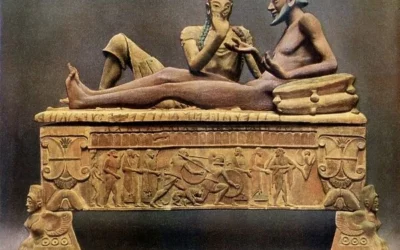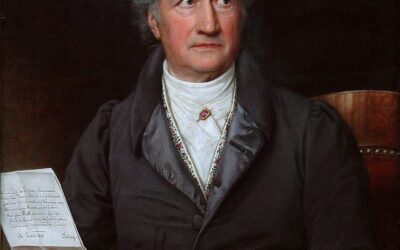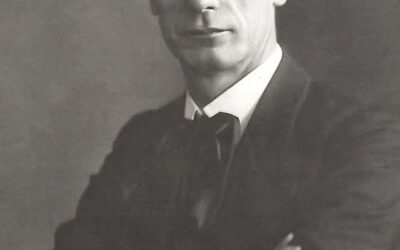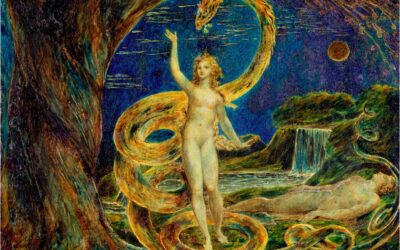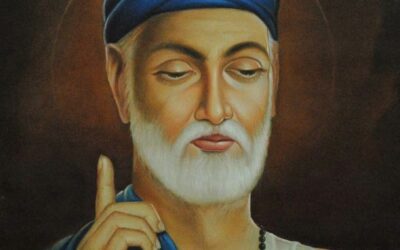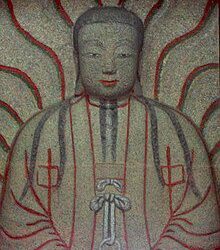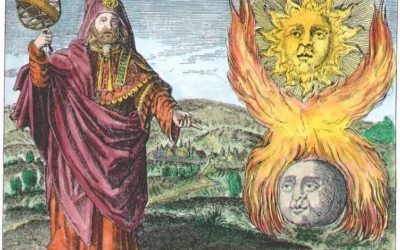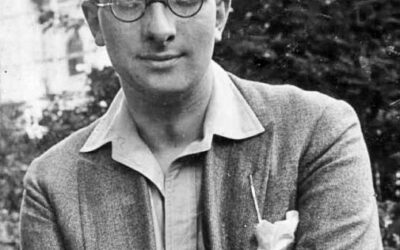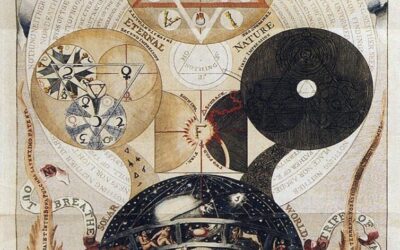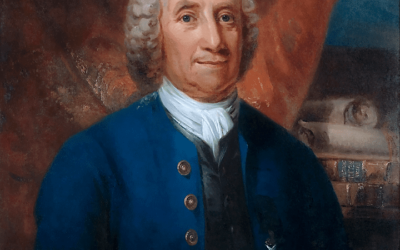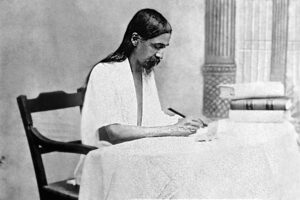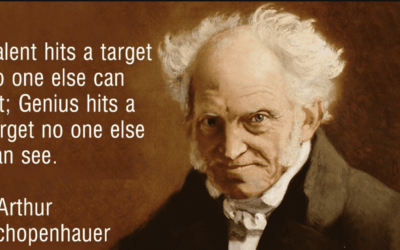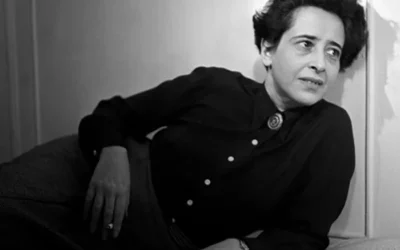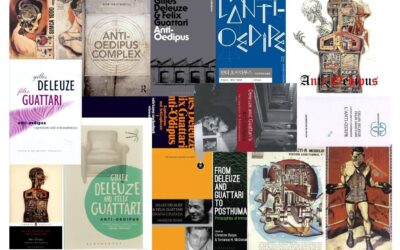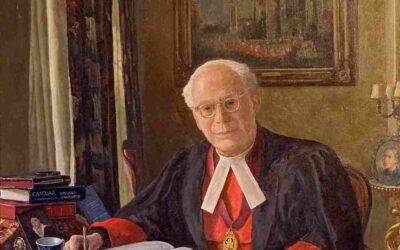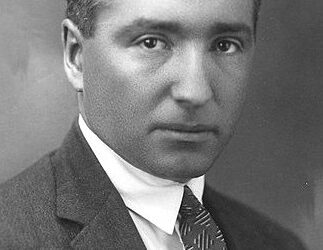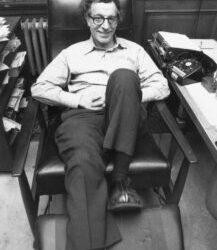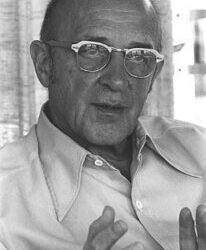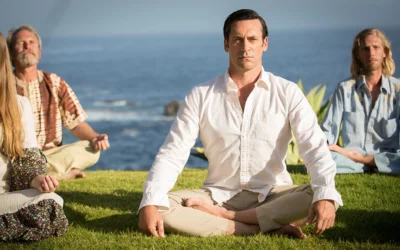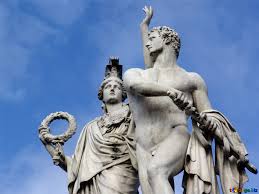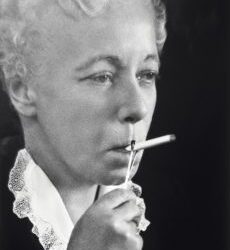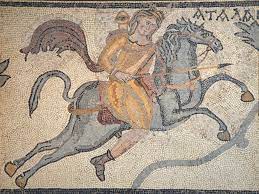All experience is past by definition. Tradition is transmission of past experience which has become knowledge and know-how. Thus, we can with reason conclude that without tradition, there can be no language, no philosophy, no science, no technique, art, or industry. Why should architecture be an exception? - Leon Krier form Howard Roark: Defended Against His Admirers The Traditionalist Architect Who Built for the Future Leon Krier passed away this week, leaving behind a legacy that fundamentally challenged how we...
History of Psychology: From Ancient Wisdom to Modern Practice
Tracing the Evolution of Mental Health Understanding Through Time
Welcome to Taproot Therapy Collective’s exploration of psychology’s rich historical development, from ancient philosophical inquiries into human nature to contemporary neuroscience research. Our history of psychology content examines how different eras, cultures, and thinkers have shaped our understanding of mental health, consciousness, and therapeutic healing.
What You’ll Find in These Articles
Our historical psychology articles trace major developments from ancient Greek and Roman approaches to mental illness through medieval spiritual healing traditions, Enlightenment rational approaches, and the emergence of modern psychological schools. We explore how figures like William James, Sigmund Freud, Carl Jung, and B.F. Skinner revolutionized mental health understanding while examining lesser-known contributors whose work influences contemporary practice.
You’ll discover how historical events, cultural shifts, and scientific discoveries shaped psychological theories while learning about forgotten approaches that are finding new relevance in modern therapy. We examine both progress and mistakes in psychology’s development, including harmful practices that remind us to remain humble about current knowledge.
Connecting Past and Present
These pieces show how historical insights inform the therapeutic approaches detailed on our main services page, from understanding psychoanalytic foundations underlying modern depth work to seeing how behaviorist research shapes contemporary evidence-based practices explored in our psychology and research section.
We explore recurring themes across psychological history, patterns of scientific revolution and paradigm shifts, and how ancient wisdom traditions continue influencing contemporary therapeutic innovation.
Regional Mental Health History
Our articles often examine Southern and Birmingham mental health history, from historical treatments and attitudes to the region’s contributions to psychological research and the impact of social movements on local mental health understanding and practice.
Contact Taproot Therapy Collective: 📍 2025 Shady Crest Dr. Suite 203, Hoover, AL 35216
📞 (205) 598-6471
🌐 www.GetTherapyBirmingham.com
🎧 Podcast: gettherapybirmingham.podbean.com
Discover + Heal + Grow with Taproot Therapy Collective – Birmingham’s resource for understanding psychology’s historical development and its influence on contemporary mental health practice.
The Enduring Relevance of Alice Miller’s Drama of the Gifted Child
Mental Health and Psychotherapy Resources in Alabama, Psychotherapy Biographies: Historical Figures in the History of Psychology
Why Therapists Must Consciously Embrace Their Wounded Healer Role Four decades after its publication, Alice Miller's "The Drama of the Gifted Child" remains one of the most important texts for understanding both the psychology of the helping professions and the hidden dynamics that can sabotage therapeutic relationships. Miller's insights into how sensitive children become caretakers—and how these caretakers often become therapists—offer crucial wisdom for contemporary mental health professionals navigating an...
The Prescient Wisdom of Dr. Shoma Morita: Metacognition, Eastern Philosophy, and the Limits of Psychopharmacology
Evidence Based Practice and Research Psychology, History of Psychotherapy, Psychotherapy Biographies: Historical Figures in the History of Psychology
The Prescient Wisdom of Dr. Shoma Morita: Metacognition, Eastern Philosophy, and the Limits of Psychopharmacology In the early 20th century, while Western psychiatry was still grappling with Freudian theories and the nascent field of psychopharmacology, a Japanese psychiatrist named Shoma Morita was developing a radically different approach to mental health. His insights, rooted in Eastern philosophy yet informed by medical training, anticipated many of the developments that Western psychology would only embrace...
The Secret Carl Jung: Uncovering the Censored Material from Memories, Dreams, Reflections
Jungian Therapy and Depth Psychology, Psychotherapy Biographies: Historical Figures in the History of Psychology
Carl Jung remains an enduring subject of fascination, his life and ideas sparking impassioned debate over 60 years after his death. As the founder of analytical psychology, Jung pioneered the exploration of the unconscious mind, dream interpretation, archetypes, and the quest for individuation. His theories have left an indelible mark on everything from psychotherapy and the arts to spirituality and popular culture. Yet even the most dedicated Jung scholars are often unaware of the full extent of his inner world...
John C. Lilly: When Dolphins, Drugs, and the Deep End of Consciousness Collided in the Psychedelic ’70s
Psychology, Psychology of History, Psychology of Media and Culture, Psychotherapy Biographies: Historical Figures in the History of Psychology
The Mad Scientist Who Made Flipper Look Like a Documentary Picture this: It's 1965, and while most scientists are content with their lab coats and microscopes, one maverick researcher is floating in a pitch-black tank filled with body-temperature salt water, high on ketamine, trying to establish interspecies communication with dolphins. No, this isn't the plot of a B-movie (though it inspired several). This was Tuesday for Dr. John C. Lilly, the neuroscientist who took "thinking outside the box" to mean...
Wilhelm Reich’s Analysis of Fascism: Enduring Wisdom and Controversial Reception
Psychology of Politics, Psychotherapy Biographies: Historical Figures in the History of Psychology, Somatic Experiencing In Alabama
Who Was Wilhelm Reich? Wilhelm Reich, a prominent psychoanalyst and philosopher, made significant contributions to the understanding of fascism through his groundbreaking work, "The Mass Psychology of Fascism." Despite the enduring wisdom of his analysis, Reich's ideas faced numerous challenges and controversies during his lifetime. In this article, we will explore Reich's perspective on fascism, the problems with his adoption by both psychoanalysts and communists, and the lasting impact of his work on political...
Who was Mesmer and WHat is Animal Magnetism?
Guided Meditations for Therapy, History of Psychotherapy, Psychology, Psychology Topics and Articles, Psychotherapy Biographies: Historical Figures in the History of Psychology
From Mesmerism to Modern Psychotherapy: The Enduring Legacy of Franz Anton Mesmer and the Importance of Empirical Validation Franz Anton Mesmer, the 18th-century German physician, is often considered the father of modern hypnosis. His theory of animal magnetism, or mesmerism, posited that an invisible, universal fluid connected all living beings and could be harnessed for healing purposes. While his ideas were initially met with skepticism and ultimately discredited by a commission led by Benjamin Franklin,...
Unlocking the Power of Ericksonian Hypnosis: Crafting Personalized Guided Meditations
Guided Meditations for Therapy, History of Psychotherapy, Psychology, Psychology Topics and Articles, Psychotherapy Biographies: Historical Figures in the History of Psychology
How to do Guided Meditation with Clients The renowned psychiatrist Milton H. Erickson was known for his unconventional yet highly effective approach to hypnosis and psychotherapy. One famous anecdote illustrates the essence of his technique: As recounted by Erickson's protégé Jeffrey Zeig, Erickson once watched Zeig, then a graduate student, prepare to smoke a pipe before a therapy session. Erickson proceeded to tell an elaborate, hour-long story about a friend who was hopelessly awkward with every aspect of pipe...
Who was Owen Barfield?
Anthropology and Evolutionary Psychology for Therapy, Psychotherapy Biographies: Historical Figures in the History of Psychology
Prophet of the Evolution of Consciousness Owen Barfield (1898-1997) was a British philosopher, poet, and critic whose groundbreaking work focused on the evolution of human consciousness and its relationship to language and imagination. A close friend of C.S. Lewis and J.R.R. Tolkien, Barfield was a core member of the Inklings literary group and widely recognized as one of the twentieth century's most original thinkers. Born in London, Barfield studied at Oxford, where he first met C.S. Lewis in 1919. Their...
Who was Karl Kerényi?
History of Psychotherapy, Psychology, Psychotherapy Biographies: Historical Figures in the History of Psychology
Exploring the Mythical Imagination Karl Kerényi (1897-1973) was a Hungarian scholar of classical philology, religion, and mythology. Along with Carl Jung and Mircea Eliade, he was one of the founding figures of modern archetypal psychology and the study of myth. Kerényi's work explored the enduring power of mythological images and their significance for the human psyche. Born in Hungary, Kerényi studied classical philology at the University of Budapest and later at the University of Greifswald in Germany. He...
Who was Richard Maurice Bucke?
Psychology of Mystics, Gurus, and Spiritual Philosophers, Psychotherapy Biographies: Historical Figures in the History of Psychology
Richard Maurice Bucke and Cosmic Consciousness Richard Maurice Bucke (1837-1902) was a Canadian psychiatrist, philosopher, and mystic whose groundbreaking work explored the evolution of human consciousness and the nature of mystical experience. His most famous book, Cosmic Consciousness: A Study in the Evolution of the Human Mind, published in 1901, has become a seminal text in the study of transpersonal psychology and spirituality. In it, Bucke argued that humanity is undergoing a profound transformation,...
The Predictive Mind: Karl Friston’s Free Energy Principle and Its Implications for Consciousness
History of Psychotherapy, Psychology, Psychotherapy Biographies: Historical Figures in the History of Psychology
The nature of consciousness has long been one of the most profound and perplexing questions in cognitive science, neuroscience, and philosophy. How does subjective experience arise from the objective, physical processes of the brain? What is the relationship between mind and matter, between the inner world of thoughts and feelings and the outer world of neurons and synapses? In his revolutionary work on the Free Energy Principle (FEP), neuroscientist Karl Friston offers a compelling new perspective on...
Viktor Frankl: Finding Meaning in the Face of Suffering
Executive and Physician Burnout, Psychotherapy Biographies: Historical Figures in the History of Psychology
1. Who Was Viktor Frankl? Viktor Emil Frankl (1905-1997) was a pioneering psychiatrist, neurologist, philosopher, and Holocaust survivor whose groundbreaking work transformed our understanding of human suffering, resilience, and the search for meaning. Born in Vienna, Austria, Frankl survived three years in Nazi concentration camps, including Auschwitz and Dachau, an experience that profoundly shaped his therapeutic approach and philosophical outlook. His innovative theories integrated existential philosophy,...
The Theories and Ideas of Rollo May
Psychotherapy Biographies: Historical Figures in the History of Psychology
Existential Psychotherapy and the Human Condition 1. Introduction: Rollo May and the Existential Approach Rollo May (1909-1994) stands as one of the most influential figures in American psychology, renowned for introducing existential psychology to the United States and reshaping therapeutic approaches through his integration of philosophy, psychology, and profound human insight. Just as Robert Moore would later bring archetypal psychology into mainstream consciousness, May bridged European existential philosophy...
Ludwig Binswanger: Pioneer of Existential Analysis
Psychotherapy Biographies: Historical Figures in the History of Psychology
Ludwig Binswanger (1881-1966) was a seminal figure in the history of psychiatry and psychotherapy. As the founder of existential analysis or "Daseinsanalysis," he developed an innovative approach that fused insights from Martin Heidegger's existential philosophy with clinical psychotherapeutic practice. Binswanger's work profoundly influenced the development of humanistic, phenomenological, and existential schools of psychotherapy in the 20th century. His ideas provide an important bridge between the medical...
Medard Boss and Daseinsanalysis
Psychotherapy Biographies: Historical Figures in the History of Psychology
A Phenomenological Approach to Human Existence 1. Who Was Medard Boss? Medard Boss (1903-1990) was a Swiss psychiatrist and psychoanalyst who pioneered Daseinsanalysis, a revolutionary approach to psychotherapy grounded in Martin Heidegger's phenomenological philosophy. After initially training in Freudian psychoanalysis, Boss underwent a profound intellectual transformation upon encountering Heidegger's work, which led him to develop a therapeutic approach that rejected the mechanistic, deterministic models of...
James F. T. Bugental: Existential Humanism
Psychotherapy Biographies: Historical Figures in the History of Psychology
James F. T. Bugental (1915-2008) was a pioneering American psychotherapist and a key figure in the development of existential-humanistic psychology. Over a career spanning more than 50 years, Bugental made significant contributions to the theory and practice of psychotherapy, with a particular focus on the transformative power of authentic presence and the exploration of "life-changing moments" in the therapeutic encounter. This essay provides an overview of Bugental's key ideas and their enduring influence on...
Emmy van Deurzen: Existential Therapy Across Four Dimensions
Psychotherapy Biographies: Historical Figures in the History of Psychology
Emmy van Deurzen is a leading contemporary existential therapist and philosopher based in Britain. Born in the Netherlands, she has been instrumental in developing the existential approach to psychotherapy and making it accessible to a wide audience. Key Ideas and Contributions Four Dimensions of Existence Central to van Deurzen's approach is the idea that human existence plays out across four dimensions: Physical Dimension: Encompassing the natural world and our bodily reality. It involves grappling with the...
R.D. Laing: Rethinking Madness and Sanity
Psychotherapy Biographies: Historical Figures in the History of Psychology, Recovering from Abuse
Ronald David Laing (1927-1989) was a pioneering Scottish psychiatrist who challenged the conventional wisdom of his field, offering a provocative existential and social perspective on mental illness. His radical views, unorthodox therapeutic methods, and scathing critique of psychiatric institutions made him a counterculture icon of the 1960s and 70s, while also attracting controversy and opposition from the mainstream medical establishment. The Divided Self In his groundbreaking first book, The Divided Self...
Medard Boss: Pioneering Daseinsanalysis
Psychotherapy Biographies: Historical Figures in the History of Psychology
Being-in-the-World Medard Boss (1903-1990) was a prominent Swiss psychiatrist and psychoanalyst best known for developing Daseinsanalysis, an approach to psychotherapy that integrated the phenomenological philosophy of Martin Heidegger with the insights of depth psychology. His innovative vision expanded the scope of psychoanalytic thought, grounding it in a holistic understanding of human existence as fundamentally embedded in the world. This article explores Boss's life, his key ideas, and his enduring impact...
The Theories and Ideas of Otto Rank
Psychotherapy Biographies: Historical Figures in the History of Psychology
1. Who Was Otto Rank? Otto Rank (1884-1939) was an Austrian psychoanalyst, writer, and teacher who was one of Sigmund Freud's closest colleagues and most brilliant students. Rank made significant contributions to psychoanalytic theory before breaking with Freud and developing his own school of thought that emphasized the creative power of the will and the existential anxiety of life and death. Some of Rank's key ideas included: The Trauma of Birth: Rank saw birth as the original source of anxiety, when we leave...
How Did Jung and Freud’s Parents Effect Their Psychology
Executive and Physician Burnout, History of Psychotherapy, Jungian Therapy and Depth Psychology, Psychotherapy Biographies: Historical Figures in the History of Psychology, Spirituality and The Transcendent Function in Psychotherapy
Is Religious Cosmology Just the Unlived Life of the Parent? A commonly quoted fact about astronomy is that the Universe is “expanding”, but that’s not really true. Our universe is nothing more than a giant ball of rules that we can measure. Rules like time, temperature, and distance. We say that the Universe is “expanding” because the amount of space we can measure inside it is increasing. We have no way of knowing what is outside of this ball of rules. It is doubtful that measurements like time and temperature...
The Development of Carl Jung’s Psychology: A Biographical and Intellectual Journey
Color Psychology, Jungian Therapy and Depth Psychology, Psychotherapy Biographies: Historical Figures in the History of Psychology
Carl Gustav Jung (1875-1961) was a seminal figure in the history of psychology, whose original and wide-ranging thought laid the foundations for the field of analytical psychology. Over the course of his long career, Jung developed an extensive theoretical framework that encompassed such concepts as the collective unconscious, archetypes, psychological types, and the process of individuation. In this article, we will trace the development of Jung's ideas through the major periods of his life, exploring the...
Carl Jung’s Shadow: Holding the Tension of Opposites in Depth Psychology
Jungian Therapy and Depth Psychology, Psychology of Mystics, Gurus, and Spiritual Philosophers, Psychotherapy Biographies: Historical Figures in the History of Psychology
Carl Jung's Tension of Opposites: Mapping the Psyche's Polarities for Healing and Wholeness One of Carl Jung's most profound yet often misunderstood ideas is the concept of the tension of opposites within the psyche. Far from a simple binary or a problem to be solved, this dynamic interplay of contrary forces is in fact crucial to the process of growth and individuation. As Jung wrote, "The self is made manifest in the opposites and in the conflict between them; it is a coincidentia oppositorum [coincidence of...
The Trial of Carl Jung: Assessing a Legacy
Jungian Therapy and Depth Psychology, Psychotherapy Biographies: Historical Figures in the History of Psychology
Was Carl Jung a Pseudoscientist? "The world today hangs by a thin thread, and that thread is the psyche of man." - C.G. Jung This trial will be an effort in intellectual history and retrospective assessment, not a literal legal proceeding. But it will draw on the judicial spirit of weighting evidence, calling expert witnesses, and rendering an impartial verdict. In that sense, it will be a trial in the court of informed opinion, one that will ask: How do Jung's legacy and the claims of analytical...
Consciousness and Depth Psychology: Insights from Michael Gazzaniga
Anthropology and Evolutionary Psychology for Therapy, Jungian Therapy and Depth Psychology, Psychotherapy Biographies: Historical Figures in the History of Psychology
What are the Origins of Conciousness? The nature of consciousness has long been one of the most profound and perplexing questions in psychology, neuroscience, and philosophy. How does subjective experience arise from the objective, physical processes of the brain? What is the relationship between mind and matter, between the inner world of thoughts and feelings and the outer world of neurons and synapses? In his groundbreaking book The Consciousness Instinct, neuroscientist Michael Gazzaniga offers a compelling...
Theodore M. Porter and the Critique of Quantification:
Evidence Based Practice and Research Psychology, Metamodernism and Deconstruction, Psychology, Psychotherapy Biographies: Historical Figures in the History of Psychology
Implications Theodore Porter's Thinking in Psychotherapy and Mental Health Who is Theodore Porter? In his seminal work "Trust in Numbers: The Pursuit of Objectivity in Science and Public Life," historian of science Theodore Porter offers a compelling analysis of the rise and cultural authority of quantitative methods in modern society. Porter challenges the prevailing assumption that the power and prestige of numbers derive solely from their success in the natural sciences. Instead, he argues that to fully...
Walter Ong: Orality, Literacy, and the Jesuit Worldview
Anthropology and Evolutionary Psychology for Therapy, Psychology of Media and Culture, Psychotherapy Biographies: Historical Figures in the History of Psychology
I. Who was Walter Ong Walter J. Ong (1912-2003) was an American Jesuit priest, professor of English literature, and cultural and religious historian. Ong made groundbreaking contributions to the fields of literacy studies, media ecology, and the evolution of human consciousness. His work explored the profound differences between oral and literate cultures and how the shift from orality to literacy has shaped human thought, expression, and social organization throughout history. As a Jesuit scholar, Ong's ideas...
Fredric Jameson: The Metamodern for Therapy
Metamodernism and Deconstruction, Phenomenology and Existential Psychology, Philosophy for Therapists, Psychotherapy Biographies: Historical Figures in the History of Psychology
Metamodernism, Post-Spirituality, and Depth Psychology: Navigating Trauma in the Contemporary Era In our increasingly complex and fragmented world, the need for frameworks to understand the psyche, culture, and the spiritual dimensions of human existence has never been greater. Two thinkers who offer profound insights into these realms are cultural theorist Fredric Jameson and depth psychologist Carl Jung. By tracing the evolution of culture through the stages of modernism, postmodernism, and metamodernism, and...
The Mythic Wisdom of Joseph Campbell: Insights for Anthropology and Psychotherapy
Anthropology and Evolutionary Psychology for Therapy, Comparative Religion for Therapy, Jungian Therapy and Depth Psychology, Psychotherapy Biographies: Historical Figures in the History of Psychology
Illuminating the Hero's Journey of the Human Soul by [Author Name] | [Date] "Myth is much more important and true than history. History is just journalism and you know how reliable that is." - Joseph Campbell 1. Who was Joseph Campbell Joseph Campbell (1904-1987) was an American mythologist, writer, and lecturer, best known for his work in comparative mythology and religion. His work is vast, covering many aspects of the human experience. Campbell's lifelong fascination with myth and his deep knowledge of...
The Existential Psychology of Viktor Frankl:
Anthropology and Evolutionary Psychology for Therapy, History of Psychotherapy, Phenomenology and Existential Psychology, Philosophy for Therapists, Psychotherapy Biographies: Historical Figures in the History of Psychology
Finding Meaning in the Face of Suffering "Everything can be taken from a man but one thing: the last of the human freedoms — to choose one's attitude in any given set of circumstances, to choose one's own way." Viktor E. Frankl, Man's Search for Meaning Viktor Emil Frankl (1905-1997) was an Austrian psychiatrist, neurologist, philosopher, author, and Holocaust survivor who founded the school of logotherapy, a meaning-centered approach to psychotherapy. His harrowing experiences in Nazi concentration camps shaped...
The Object Relations Theory of Ronald Fairbairn:
History of Psychotherapy, Psychotherapy Biographies: Historical Figures in the History of Psychology
A New Paradigm for Understanding the Self "The ultimate aim of the self is to be itself in relation to objects which are themselves." 1. Who was Ronald Fairbairn Ronald Fairbairn (1889-1964) was a Scottish psychoanalyst who played a pivotal role in the development of object relations theory. Diverging from classical Freudian drive theory, Fairbairn proposed a new model of the psyche centered on the individual's relationships with real and internalized others. His innovative concepts of the endopsychic structure,...
Otto Rank: Pioneer of Birth Trauma Theory and the Will in Psychoanalysis
History of Psychotherapy, Psychotherapy Biographies: Historical Figures in the History of Psychology
Who was Otto Rank? Otto Rank (1884-1939) stands as one of the most innovative and controversial figures in the history of psychoanalysis. Rising from humble beginnings in Vienna to become one of Freud's closest collaborators, Rank ultimately developed his own distinctive therapeutic approach that emphasized birth trauma, creativity, and the human will. His theoretical departures from orthodox psychoanalysis, while initially met with hostility, have proven remarkably prescient, influencing humanistic psychology,...
The Interpersonal Theory of Psychiatry: Harry Stack Sullivan’s Vision of the Social Self
History of Psychotherapy, Psychotherapy Biographies: Historical Figures in the History of Psychology
Who Was Harry Stack Sullivan? "We are all much more simply human than otherwise." - Harry Stack Sullivan The Revolutionary Vision of Harry Stack Sullivan Harry Stack Sullivan (1892-1949) emerged as one of the most innovative and influential psychiatrists of the twentieth century, fundamentally transforming our understanding of human personality and mental illness. His interpersonal theory of psychiatry represented a radical departure from the intrapsychic focus of traditional psychoanalysis, emphasizing instead...
John Bowlby and Attachment Theory: Revolutionizing Our Understanding of Human Relationships
History of Psychotherapy, Psychotherapy Biographies: Historical Figures in the History of Psychology
Who was John Bowlby? "What cannot be communicated to the mother cannot be communicated to the self." - John Bowlby John Bowlby (1907-1990) stands as one of the most influential psychologists of the twentieth century, fundamentally transforming our understanding of human relationships, emotional development, and mental health. His attachment theory, developed through careful observation and innovative thinking, challenged the prevailing psychoanalytic dogma of his time and created a new paradigm for understanding...
Psychoanalytic Contributions of Otto Kernberg:
History of Psychotherapy, Psychotherapy Biographies: Historical Figures in the History of Psychology
Bridging Object Relations and Clinical Innovation Who was Otto Kernberg? "The integration of love and aggression within the context of internalized object relations represents the core psychological task in personality development. When this integration fails, primitive defensive operations predominate, leading to the characteristic features of severe personality disorders." - Otto Kernberg Theoretical Foundations and Innovations Integration of Object Relations and Ego Psychology At the heart of Kernberg's...
The Self Psychology of Heinz Kohut: Revolutionizing Narcissism and the Psychology of the Self
History of Psychotherapy, Psychotherapy Biographies: Historical Figures in the History of Psychology
Who was Heinz Kohut? "The most significant characteristic of human existence is neither biological drives nor unconscious wishes but rather the human need to have the self understood, validated, and supported by others." - Heinz Kohut The Revolutionary Vision of Heinz Kohut Heinz Kohut (1913-1981) emerged as one of the most innovative and influential psychoanalysts of the twentieth century, fundamentally transforming our understanding of narcissism, empathy, and the development of the self. His journey from...
The Psychosocial Theory of Erik Erikson:
History of Psychotherapy, Psychotherapy Biographies: Historical Figures in the History of Psychology
“Explore Erik Erikson’s groundbreaking psychosocial development theory, from his eight developmental stages to his revolutionary concepts of identity formation. This comprehensive analysis examines how his work transformed psychology, education, and our understanding of human development across the lifespan, while remaining relevant in today’s digital age.”
Margaret Mahler’s Post Freudian Inovations in Attachment
History of Psychotherapy, Psychotherapy Biographies: Historical Figures in the History of Psychology
Who Was Margaret Mahler? Margaret Mahler (1897-1985) was a Hungarian-born psychoanalyst who made seminal contributions to the field of developmental psychology. Best known for her separation-individuation theory of child development, Mahler's work illuminated the crucial role of the early mother-child relationship in the formation of individual identity. Through meticulous observation of infants and young children, Mahler mapped the process by which a child emerges from a state of total dependence on the mother...
The Psychoanalytic Theories of Melanie Klein
History of Psychotherapy, Psychotherapy Biographies: Historical Figures in the History of Psychology
Exploring the Earliest Stages of Psychic Life "The early ego lacks cohesion, and a tendency towards integration alternates with a tendency towards disintegration, a falling into bits... The result is an acute feeling of insecurity." 1. Who Was Melanie Klein Melanie Klein (1882-1960) was an Austrian-British psychoanalyst who pioneered the field of child analysis and developed a groundbreaking theory of the infant psyche. Extending Freud's ideas, Klein mapped the earliest stages of psychological development,...
The Developmental Psychology of D.W. Winnicott: Illuminating the Roots of Selfhood and Creativity
History of Psychotherapy, Psychotherapy Biographies: Historical Figures in the History of Psychology
"The sense of being alive, the ability to feel real, to be genuinely spontaneous - these are the hallmarks of emotional health. And they all begin in the earliest interactions between mother and baby, in that sacred space where two beings meet and a self is born." The Theories and Ideas of D.W. Winnicott 1. Who Was Donald Woods Winnicott? Donald Woods Winnicott (1896-1971) was a pioneering British pediatrician and psychoanalyst whose innovative theories transformed our understanding of the emotional development...
Exploring the Contributions of Rollo May to Existential Psychotherapy
Philosophy for Therapists, Psychology, Psychotherapy Biographies: Historical Figures in the History of Psychology
Exploring the Contributions of Rollo May to Existential Psychotherapy Who was Rollo May Rollo May (1909-1994) was an influential American existential psychologist and psychotherapist. He played a key role in introducing existential psychology to the United States and in shaping the humanistic psychology movement of the mid-20th century. May's work bridged the insights of European existential philosophy with the practical concerns of clinical psychology, offering a compelling vision of the human condition and the...
Exploring the Relevance of Albert Camus’ Ideas for Psychotherapy
Philosophy for Therapists, Psychotherapy Biographies: Historical Figures in the History of Psychology
Who was Albert Camus? Albert Camus (1913-1960) was a French philosopher, author, and journalist who is widely regarded as one of the most influential thinkers of the 20th century. His work explored the absurdity of the human condition, the search for meaning in a seemingly meaningless universe, and the challenge of living authentically in the face of life's contradictions. While not directly involved in psychology or psychotherapy, Camus' ideas have had a significant impact on existential and humanistic...
Exploring the Relevance of Søren Kierkegaard’s Ideas for Psychotherapy
Philosophy for Therapists, Psychotherapy Biographies: Historical Figures in the History of Psychology
Who was Søren Kierkegaard? Søren Kierkegaard (1813-1855) was a Danish philosopher, theologian, and author widely regarded as the first existentialist philosopher. His work explored the nature of human existence, emphasizing individuality, personal choice and commitment, and the struggle with anxiety and despair in the face of life's uncertainties. Kierkegaard's ideas profoundly influenced later existentialist thinkers as well as psychologists and psychotherapists grappling with the complexities of the human...
Neil Postman: Media Critic and Cultural Theorist
Psychology, Psychology of Film and TV, Psychology of Media and Culture, Psychotherapy Biographies: Historical Figures in the History of Psychology
Who Was Neil Postman? Neil Postman (1931-2003) was an American media theorist, cultural critic, and educator whose work profoundly influenced our understanding of the relationship between media, technology, and culture. His incisive critiques of television, education, and the information age continue to resonate in today's digital landscape. This paper explores Postman's life, key ideas, and enduring legacy, examining the relevance of his thought to fields such as psychology, education, and media studies. II....
Friedrich Kittler: Theorist of Media and Technology
Anthropology and Evolutionary Psychology for Therapy, Metamodernism and Deconstruction, Psychology, Psychology of Film and TV, Psychology of Media and Culture, Psychotherapy Biographies: Historical Figures in the History of Psychology
Friedrich Kittler: Digital Theory I. Who was Friedrich Kittler Friedrich Kittler (1943-2011) was a German literary scholar, media theorist, and cultural historian who made significant contributions to the fields of media studies, discourse analysis, and the history of technology. Kittler's work, which draws on a wide range of disciplines including literature, philosophy, psychoanalysis, and information theory, offers a provocative and influential perspective on the ways in which media technologies shape human...
Lev Manovich: Pioneering Theorist of New Media
Psychology, Psychology of Film and TV, Psychology of Media and Culture, Psychotherapy Biographies: Historical Figures in the History of Psychology
Who is Lev Manovich? Lev Manovich is a pioneering theorist of new media, whose groundbreaking work has shaped the field of digital culture and media studies. Born in Moscow in 1960, Manovich's intellectual journey spans computer science, visual arts, media theory, and cultural analytics. His seminal book, "The Language of New Media" (2001), laid the foundation for understanding the unique characteristics and affordances of digital media, and their profound impact on contemporary culture and society. Biography of...
Marshall McLuhan: The Medium is the Message
Metamodernism and Deconstruction, Psychology of Fiction / Flash Fiction / Screenwriting, Psychology of Film and TV, Psychology of Media and Culture, Psychotherapy Biographies: Historical Figures in the History of Psychology
Who was Marshall McLuhan? Marshall McLuhan, a Canadian philosopher, professor, and public intellectual, stands as one of the most influential figures in media theory and cultural studies of the 20th century. His work, characterized by its prescient insights into the nature of media and its effects on human consciousness and society, continues to resonate in our increasingly digital and interconnected world. This paper seeks to explore McLuhan's life, ideas, and enduring legacy, situating his thought within the...
Claude Shannon and Warren Weaver: Architects of Information Theory
Philosophy for Therapists, Psychology of Film and TV, Psychology of Media and Culture, Psychotherapy Biographies: Historical Figures in the History of Psychology
I. What is the Shannon Weaver Model Claude Shannon (1916-2001) and Warren Weaver (1894-1978) were two American mathematicians and engineers whose collaborative work laid the foundation for modern information theory. Their groundbreaking research in the mid-20th century revolutionized our understanding of communication, paving the way for the digital age and profoundly influencing fields ranging from computer science and cryptography to linguistics and psychology. This paper explores the lives and ideas of Claude...
Jean Baudrillard: Philosopher of Hyperreality and Simulation
Phenomenology and Existential Psychology, Philosophy for Therapists, Psychotherapy Biographies: Historical Figures in the History of Psychology
Simulacra and Simulation "We are in a logic of simulation, which no longer has anything to do with a logic of facts and an order of reason. Simulation is characterized by a precession of the model, of all the models based on the merest fact - the models come first, their circulation, orbital like that of the bomb, constitutes the genuine magnetic field of the event. The facts no longer have a specific trajectory, they are born at the intersection of models, a single fact can be engendered by all the models at...
The Revolutionary Life and Ideas of Guy Debord: Exploring the Situationist Critique of Modern Society
Anthropology and Evolutionary Psychology for Therapy, Metamodernism and Deconstruction, Psychology of Media and Culture, Psychotherapy Biographies: Historical Figures in the History of Psychology
Guy Debord: Exploring the Situationist Critique of Modern Society I. Who was Guy Debord Guy Debord (1931-1994) was a French Marxist theorist, philosopher, filmmaker, and founding member of the Situationist International, a radical avant-garde movement that sought to transform everyday life through the fusion of art and politics. Debord's groundbreaking book "The Society of the Spectacle" (1967) presented a scathing critique of modern capitalist society, arguing that authentic social life had been replaced with...
Erich Fromm: Legacy and Relevance to Depth Psychology
Anthropology and Evolutionary Psychology for Therapy, History of Psychotherapy, Psychotherapy Biographies: Historical Figures in the History of Psychology
1. Who Was Erich Fromm? Erich Fromm (1900-1980) was a renowned psychoanalyst, sociologist, and humanistic philosopher who made significant contributions to our understanding of the human condition in the modern world. Born in Frankfurt, Germany, Fromm was deeply influenced by the tumultuous events of the 20th century, including the rise of fascism, the Holocaust, and the Cold War. These experiences shaped his lifelong commitment to exploring the psychosocial roots of authoritarianism, alienation, and the...
From Analytical to Experiential: The Transformation of Post-Jungian Psychotherapy
History of Psychotherapy, Jungian Therapy and Depth Psychology, Models of Psychotherapy, Psychotherapy Biographies: Historical Figures in the History of Psychology
What Happened to Jungian Therapy After Jung Died? Carl Gustav Jung, the founder of analytical psychology, left an indelible mark on the field of psychotherapy. His groundbreaking ideas about the collective unconscious, archetypes, and the individuation process have influenced generations of therapists and continue to shape our understanding of the human psyche. However, in the years following Jung's death in 1961, the landscape of Jungian psychotherapy began to shift in ways that some argue strayed from the core...
The Unfinished Legacy of Alfred Adler: Revisioning Psychology for Social Transformation
History of Psychotherapy, Industrial Organisational Psychology, Jungian Therapy and Depth Psychology, Psychology of History, Psychotherapy Biographies: Historical Figures in the History of Psychology
"The human psyche is shaped by the interplay between inner drives and outer cultural forces. For every dominant social pattern, the unconscious generates a compensatory movement, seeking to restore balance and wholeness. By understanding these cultural-psychological dynamics, we can work towards greater self-awareness, social responsibility, and holistic well-being." -Alfred Adler Who Was Alfred Adler? Alfred Adler (1870-1937) was an Austrian medical doctor, psychotherapist, and founder of the school of...
Lessons on Acceptance from Irvin Yalom’s Existential Psychotherapy
Philosophy for Therapists, Psychology, Psychotherapy Biographies: Historical Figures in the History of Psychology
The Stages of Grief as Defelection from Existential Dread We all go through the stages of grief all of the time: The stages of grief - denial, anger, bargaining, depression, and acceptance - represent common emotional reactions to loss and change (Kübler-Ross & Kessler, 2005). However, they can also be seen as ways we deflect away from reality to pretend our interior emotional spaces can control external circumstances. In the depths of grief, we rage against what is, bargain for a different outcome, and sink...
James George Frazer: Pioneering Insights into Myth, Religion, and the Psyche
Anthropology and Evolutionary Psychology for Therapy, Jungian Therapy and Depth Psychology, Psychotherapy Biographies: Historical Figures in the History of Psychology
Who was James George Frazer? James George Frazer (1854-1941) was a groundbreaking Scottish anthropologist, folklorist, and classical scholar whose work laid the foundations for modern anthropology, psychology, and comparative religious studies. Best known for his monumental study of myth and religion, The Golden Bough, Frazer pioneered the comparative method in anthropology, seeking to unveil universal patterns and evolutionary sequences in human beliefs and practices across cultures. His ideas not only shaped...
Alvar Aalto: Organic Modernism and the Humanization of Design
Psychology of Buildings and Architecture, Psychotherapy Biographies: Historical Figures in the History of Psychology
Who was Alvar Aalto? Alvar Aalto (1898-1976) was a Finnish architect and designer whose work synthesized modernist ideals with a deep reverence for nature and humanism. Over a career spanning more than five decades, Aalto created a vast body of work that included buildings, furniture, glassware, and textiles, all united by a common vision of organic harmony and human-centered design. From his early experiments in bent wood furniture to his monumental civic centers and churches, Aalto's designs embodied a unique...
Arne Jacobsen: Organic Modernism
Industrial Organisational Psychology, Psychology of Buildings and Architecture, Psychotherapy Biographies: Historical Figures in the History of Psychology
Who was Arne Jacobsen? Arne Jacobsen (1902-1971) was a seminal figure in Danish modernist architecture and design. Over a prolific career, Jacobsen created a visionary body of work that fused the clean minimalism of the International Style with a distinctively Scandinavian sense of warmth and humanism. His buildings and furnishings exemplified a philosophy of "organic modernism," embracing the latest technologies and materials while remaining grounded in the tactility of nature and the contours of the human body....
Ludwig Mies van der Rohe: Architect of the Modern Age
Psychology of Buildings and Architecture, Psychology of Mystics, Gurus, and Spiritual Philosophers, Psychotherapy Biographies: Historical Figures in the History of Psychology
Who was Ludwig Mies van der Rohe? Ludwig Mies van der Rohe (1886-1969) was a towering figure in the history of modern architecture, whose influence continues to shape the built environment well into the 21st century. Over a career spanning more than half a century, Mies developed a distinctive vision of structural clarity and spatial poetry that redefined the very language of building. From his early experiments in European modernism to his iconic American skyscrapers, Mies pursued an architecture of essential...
Niels O. Möller: Master of Danish Modern Chair Design
Psychology of Buildings and Architecture, Psychology of Mystics, Gurus, and Spiritual Philosophers, Psychotherapy Biographies: Historical Figures in the History of Psychology
Who was Niels Moller? Early Life and Training Niels Otto Möller was born in 1920 in Aarhus, Denmark. The son of a shoe manufacturer, Möller developed an appreciation for craftsmanship and materials from an early age. As a young man, he trained as a cabinetmaker before studying at the prestigious Danish School of Arts and Crafts in Copenhagen. After completing his education in 1944, Möller returned to Aarhus and opened his own workshop and design studio. There he began experimenting with chair designs, honing the...
Hans J. Wegner: The Master of Chairs and teh Danish Modern
Psychology of Buildings and Architecture, Psychotherapy Biographies: Historical Figures in the History of Psychology
Hans J. Wegner: Archetypes of Danish Chair Design Hans J. Wegner (1914-2007) was a pioneering Danish furniture designer whose work helped define the aesthetic of mid-century modern design. Over a prolific career spanning nearly seven decades, Wegner crafted a stunning array of chairs that married the sleek functionality of modernism with the warmth and organic sensibility of natural materials. His designs, at once timeless and utterly original, gave expression to the deepest principles of form and craftsmanship....
Was Freud Wrong About Sexuality?
History of Psychotherapy, Jungian Therapy and Depth Psychology, Models of Psychotherapy, Phenomenology and Existential Psychology, Psychotherapy Biographies: Historical Figures in the History of Psychology
Evolution, the Divided Brain, and the Complexity of the Human Psyche Sigmund Freud, the father of psychoanalysis, is famous (or perhaps infamous) for his controversial theories that placed sexuality at the very center of the human psyche. He argued that sexual instincts and impulses, emerging from the unconscious id, were the primary drivers of human behavior, motivation, personality development, and even mental illness. But was Freud wrong about the primacy of sexuality? Insights from evolutionary psychology,...
Paul MacLean’s Triune Brain: Evolutionary Layers of the Human Psyche
Neuroscience and the Brain for Therapists, Psychotherapy Biographies: Historical Figures in the History of Psychology
Who was Paul Maclean? Paul D. MacLean (1913-2007) was an American physician and neuroscientist who made significant contributions to the study of brain evolution and behavior. He is best known for his triune brain theory, which proposed that the human brain is composed of three distinct evolutionary layers, each associated with different functions and behavioral patterns. MacLean's work has had a profound influence on fields ranging from neuroscience to psychiatry to depth psychology, offering a compelling...
Nietzsche’s Influence and Counter Transference on Carl Jung
Phenomenology and Existential Psychology, Philosophy for Therapists, Psychotherapy Biographies: Historical Figures in the History of Psychology
Nietzsche's Influence and Counter Transference on Carl Jung The relationship between Friedrich Nietzsche and Carl Jung was one of profound influence mixed with misunderstanding, fear, and divergence. Jung built upon Nietzsche's pioneering explorations of the hidden depths of the human psyche, yet also harbored deep concerns about following Nietzsche's path. A close examination reveals that Jung was both more indebted to and more conflicted about Nietzsche than he openly acknowledged. One curious episode that...
Freud’s Death Drive: What was Thanatos?
Dreams and the Unconscious, Phenomenology and Existential Psychology, Psychotherapy Biographies: Historical Figures in the History of Psychology
Why did Freud Abandon His Death Drive Theory? In the hit TV show Mad Men, ad executive Pete Campbell makes a daring pitch to Lucky Strike cigarettes. To sell their product, he suggests, they should embrace the subconscious "death wish" that drives people to smoke. While Campbell's pitch was shocking, the concept he based it on - Sigmund Freud's "death drive," or thanatos - is one of the most intriguing and controversial ideas in the history of psychology. Freud believed that just as humans have an innate drive...
Dr. John E. Fryer’s Legacy and the Current State of Therapy
History of Psychotherapy, Psychotherapy Biographies: Historical Figures in the History of Psychology
Who was Dr. H Anonymous? Dr. John E. Fryer, known as Dr. H. Anonymous, played a pivotal role in the history of psychiatry and the fight against the stigmatization of homosexuality. In 1972, Dr. Fryer delivered a groundbreaking speech at the American Psychiatric Association (APA) annual meeting, challenging the classification of homosexuality as a mental disorder. Wearing a mask and using a voice-altering microphone to protect his identity, Dr. Fryer spoke about the experiences of gay psychiatrists and the need...
The Holistic Theology and Alchemy of Arnaldus de Villanova
Christian Mysticism in Therapy, Depth Psychology Approaches and Techniques, Phenomenology and Existential Psychology, Psychology of Mystics, Gurus, and Spiritual Philosophers, Psychotherapy Biographies: Historical Figures in the History of Psychology
1. Who was Arnaldus de Villanova? Arnaldus de Villanova (c.1240-1311) was a renowned Catalan physician, theologian, diplomat and alchemist who made significant contributions to the development of medicine and spirituality in medieval Europe. An influential figure in the courts of kings and popes, Arnaldus pioneered a holistic approach to health and healing that synthesized insights from Hippocratic-Galenic medicine, Christian theology, Kabbalah, hermeticism and alchemy. At the heart of his thought was a...
Suhrawardi and the Illuminationist Philosophy: Insights for Depth Psychology
Jungian Therapy and Depth Psychology, Psychology of Mystics, Gurus, and Spiritual Philosophers, Psychotherapy Biographies: Historical Figures in the History of Psychology
Who was Suhrawardi? Shahab al-Din Yahya ibn Habash Suhrawardi (1154-1191), known as Shaikh al-Ishraq or the "Master of Illumination," was a Persian philosopher, mystic, and founder of the illuminationist school of Islamic philosophy. His works, such as Hikmat al-Ishraq (The Philosophy of Illumination) and Hayakil al-Nur (The Temples of Light), offer a unique synthesis of Zoroastrian, Platonic, and Islamic ideas, and present a vision of reality as a hierarchy of lights emanating from the divine source....
Pierre Teilhard de Chardin: Reconciling Matter and Spirit
Psychology of Mystics, Gurus, and Spiritual Philosophers, Psychotherapy Biographies: Historical Figures in the History of Psychology, Spirituality and The Transcendent Function in Psychotherapy
Who was Pierre Teilhard de Chardin? Pierre Teilhard de Chardin (1881-1955), the French Jesuit priest, paleontologist, and philosopher, devoted his life to reconciling the realms of matter and spirit, science and religion. His unique vision sought to bridge the apparent chasm between the tangible world of atoms and molecules and the intangible world of consciousness and divinity. Teilhard's thought, as expressed in his seminal work The Heart of Matter, resonates with the ancient wisdom of Gnosticism, which...
Friedrich Hölderlin: This Influence on Jung and Modern Mysticism
Depth Psychology Approaches and Techniques, Phenomenology and Existential Psychology, Psychology of Mystics, Gurus, and Spiritual Philosophers, Psychotherapy Biographies: Historical Figures in the History of Psychology
Who was Friedrich Hölderlin? The Course of Life (Lebenslauf) You too wanted more, but love Forces all of us under. Pain’s necessary curve Returns us to our beginnings. Whether up or down, in the holiness of night, Speechless nature determines all the days to come; Yet in the labyrinths of death You can find a straight path. I know this—not once, like mortal instructors Did you heavenly, all-knowing gods Have the foresight to lead me Along a level path. Everything’s a test, say the gods. Having found his strength,...
D.T. Suzuki: Zen Scholar and Cultural Ambassador
Psychology of Mystics, Gurus, and Spiritual Philosophers, Psychotherapy Biographies: Historical Figures in the History of Psychology
Who was D.T. Suzuki Daisetsu Teitaro Suzuki (1870-1966), better known as D.T. Suzuki, was a pivotal figure in the introduction of Zen Buddhism to the West. A prolific writer, lecturer, and translator, Suzuki played a key role in shaping the Western understanding of Zen and its influence on Japanese culture. His work bridged Eastern and Western thought, sparking a fascination with Zen that continues to this day. This essay provides an in-depth exploration of Suzuki's life, key ideas, and enduring impact on the...
The Enduring Wisdom of Ernest Becker’s “The Denial of Death”
History of Psychotherapy, Psychotherapy Biographies: Historical Figures in the History of Psychology
Who was Ernest Becker? In the labyrinth of the evolving profession of psychology few books have had as subtle influence on the profession as Ernest Becker's "The Denial of Death." Awarded the Pulitzer Prize for General Non-Fiction in 1974, this groundbreaking book offers a profound exploration into the human psyche's struggle with and avoidance of the inevitability of death. Becker's thesis, rooted in the concept of "terror management theory," suggests that the fear of death underpins much of human behavior,...
The Philosophy Behind and Around Carl Jung
Christian Mysticism in Therapy, Depth Psychology Approaches and Techniques, History of Psychotherapy, Phenomenology and Existential Psychology, Psychology of Mystics, Gurus, and Spiritual Philosophers, Psychotherapy Biographies: Historical Figures in the History of Psychology, Symbolism and Meaning in Psychotherapy
What were Carl Jung's Major Influences? Carl Jung was profoundly influenced by a wide range of philosophers, thinkers and mystics in developing his groundbreaking theories of analytical psychology. He drew upon ideas from existentialism, phenomenology, German idealism, Neoplatonism, Hermeticism, Gnosticism, and Christian mysticism to formulate his conceptions of the collective unconscious, archetypes, individuation, and the Self. Let's examine in-depth how some of these key figures shaped Jung's thought. Philemon...
Edmund Husserl and the Phenomenological Foundations of Psychology
Depth Psychology Approaches and Techniques, Phenomenology and Existential Psychology, Philosophy for Therapists, Psychology of Mystics, Gurus, and Spiritual Philosophers, Psychotherapy Biographies: Historical Figures in the History of Psychology
Who was Edmund Husserl? Edmund Husserl (1859-1938), the German philosopher widely regarded as the founder of phenomenology, has had a profound and enduring influence on the development of psychology and psychotherapy. His rigorous investigation of the structures of consciousness and his call for a return "to the things themselves" have inspired generations of thinkers to explore the lived experience of the human mind. In this essay, we will examine Husserl's key philosophical contributions, trace their impact on...
Donald Kalsched: Archetypal Defenses and the Healing of Trauma
Jungian Therapy and Depth Psychology, Psychology of Mystics, Gurus, and Spiritual Philosophers, Psychotherapy Biographies: Historical Figures in the History of Psychology
Who is Donald Kalsched? Donald Kalsched is a prominent Jungian analyst and clinical psychologist whose groundbreaking work has revolutionized our understanding of early childhood trauma, dissociation, and the inner world of the psyche. His theories provide a profound and nuanced framework for conceptualizing and treating some of the most challenging psychological conditions, including dissociative identity disorder, borderline personality disorder, and other complex trauma-related disorders. Drawing on the rich...
The Life and Work of Alan Watts: A Transformative Bridge Between East and West
Phenomenology and Existential Psychology, Psychotherapy Biographies: Historical Figures in the History of Psychology
Who was Alan Watts? Alan Wilson Watts (1915-1973) was a British-American philosopher, writer, and speaker who played a pivotal role in introducing Eastern philosophy and spirituality to Western audiences. His charismatic presence, eloquent articulation, and profound insights into the nature of existence made him one of the most influential figures in the counterculture movement of the 1960s and beyond. Watts' work continues to shape discussions in philosophy, psychology, spirituality, and popular culture,...
Martin Heidegger and the Quest for Being: Implications for Psychotherapy and Depth Psychology
Depth Psychology Approaches and Techniques, Phenomenology and Existential Psychology, Philosophy for Therapists, Psychology of Mystics, Gurus, and Spiritual Philosophers, Psychotherapy Biographies: Historical Figures in the History of Psychology
Who was Heidegger? Martin Heidegger (1889-1976) stands as one of the most influential and controversial philosophers of the 20th century. His groundbreaking work, particularly his magnum opus Being and Time (1927), revolutionized the field of ontology and laid the foundations for existentialism, hermeneutics, and postmodern thought. Heidegger's relentless pursuit of the meaning of Being, his critique of Western metaphysics, and his analysis of human existence as Dasein ("being-there") continue to shape...
Gilbert Durand: Exploring the Anthropology of the Imaginary
Phenomenology and Existential Psychology, Psychology of Buildings and Architecture, Psychology of Mystics, Gurus, and Spiritual Philosophers, Psychotherapy Biographies: Historical Figures in the History of Psychology
Who was Gilbert Durand? Gilbert Durand (1921-2012) was a French philosopher, anthropologist, and scholar of religious studies whose work focused on the study of symbols, myths, and the imaginary in human culture. Durand's interdisciplinary approach, drawing from fields such as anthropology, psychology, and comparative religion, led to the development of a unique theoretical framework for understanding the role of the imaginary in shaping human experience and cultural expression. Durand's Theory of the Imaginary...
Jean Gebser: Integration through the Integral
Phenomenology and Existential Psychology, Psychology of Modernism Post Modernism and the Meta Modern, Psychology of Mystics, Gurus, and Spiritual Philosophers, Psychotherapy Biographies: Historical Figures in the History of Psychology
Who is Jean Gebser? Jean Gebser (1905-1973) was a German-born Swiss philosopher, linguist, and poet who made significant contributions to the understanding of human consciousness and cultural evolution. His magnum opus, "The Ever-Present Origin" (1949), outlines a theory of the unfolding of human consciousness through five distinct stages or "structures": the archaic, magical, mythical, mental, and integral. Gebser's work has had a profound influence on fields as diverse as anthropology, psychology, sociology,...
Paul Ricoeur: A Philosopher of Language, Narrative Identity and Hermeneutics
Christian Mysticism in Therapy, Phenomenology and Existential Psychology, Psychology of Buildings and Architecture, Psychology of Modernism Post Modernism and the Meta Modern, Psychology of Mystics, Gurus, and Spiritual Philosophers, Psychotherapy Biographies: Historical Figures in the History of Psychology
Who was Paul Ricouer? Paul Ricoeur (1913-2005) was one of the most influential French philosophers of the 20th century. His wide-ranging work made major contributions to the fields of phenomenology, hermeneutics, existentialism, theology and literary theory. Ricoeur is known for his analysis of language and narrative as fundamental to human understanding and identity. His insights reshaped debates around interpretation theory, selfhood, memory, history and ethics. This comprehensive essay explores Ricoeur's key...
Maurice Merleau-Ponty: Embodied Perception and Existential Phenomenology
Christian Mysticism in Therapy, Jungian Therapy and Depth Psychology, Metamodernism and Deconstruction, Phenomenology and Existential Psychology, Psychology of Buildings and Architecture, Psychology of Modernism Post Modernism and the Meta Modern, Psychology of Mystics, Gurus, and Spiritual Philosophers, Psychotherapy Biographies: Historical Figures in the History of Psychology, Trauma Treatment in Alabama, Trauma, Depth Psychology, and Social Work
Who was Maurice Merleau-Ponty? Maurice Merleau-Ponty (1908-1961) was a French philosopher and phenomenologist who made significant contributions to the fields of phenomenology, existentialism, and the philosophy of perception. His work bridged the gap between continental philosophy and the emerging fields of cognitive science and psychology, influencing subsequent thinkers in philosophy, psychology, and the social sciences. Merleau-Ponty's theories on embodied cognition, the lived body, and the primacy of...
Hans-Georg Gadamer: Psychology Through Hermeneutics
Phenomenology and Existential Psychology, Philosophy for Therapists, Psychology of Mystics, Gurus, and Spiritual Philosophers, Psychotherapy Biographies: Historical Figures in the History of Psychology
Who was Hans-Georg Gadamer? Hans-Georg Gadamer (1900-2002) was a German philosopher and a leading figure in the field of hermeneutics, the theory and practice of interpretation. His work has had a profound impact on a wide range of disciplines, including philosophy, literary criticism, theology, and the social sciences. Gadamer's magnum opus, "Truth and Method" (1960), is considered a seminal text in 20th-century philosophy and has shaped the way we understand the nature of understanding itself. In this...
Ernst Cassirer: Philosopher of Symbolic Forms and Cultural Theory
Jungian Therapy and Depth Psychology, Phenomenology and Existential Psychology, Philosophy for Therapists, Psychology of Buildings and Architecture, Psychology of Mystics, Gurus, and Spiritual Philosophers, Psychotherapy Biographies: Historical Figures in the History of Psychology, Trauma Treatment in Alabama, Trauma, Depth Psychology, and Social Work
Who was Ernst Cassirer? Ernst Cassirer (1874-1945) was a German-Jewish philosopher who made significant contributions to the fields of epistemology, philosophy of science, intellectual history, and cultural theory. His work on symbolic forms and his neo-Kantian approach to understanding human culture and cognition have had a lasting impact on various disciplines, including philosophy, anthropology, linguistics, and cognitive science. Cassirer's theories have influenced subsequent thinkers and continue to be...
Pierre Janet: Pioneer of Dissociation Theory and Psychological Analysis
Phenomenology and Existential Psychology, Psychotherapy Biographies: Historical Figures in the History of Psychology
Who was Pierre Janet? Pierre Janet (1859-1947) was a French psychologist, philosopher, and psychotherapist who made significant contributions to the understanding of the human mind and the treatment of psychological disorders. His work laid the foundation for many modern concepts in psychology and psychotherapy, particularly in the areas of dissociation, trauma, and the unconscious mind. Janet's theories and clinical observations have had a lasting impact on the field of psychology, influencing later thinkers...
Herbert Silberer: Exploring the Frontiers of Psychoanalysis and Alchemy
Phenomenology and Existential Psychology, Psychology of Buildings and Architecture, Psychology of Mystics, Gurus, and Spiritual Philosophers, Psychotherapy Biographies: Historical Figures in the History of Psychology
Who was Herbert Silberer? Herbert Silberer (1882-1923) was an Austrian psychoanalyst, author, and researcher who made significant contributions to the fields of psychoanalysis, dream interpretation, and the psychology of alchemy during the early 20th century. Despite his relatively short life, Silberer left an indelible mark on the history of psychology, offering groundbreaking insights into the nature of the unconscious mind, the meaning of dreams, and the relationship between psychology and esotericism. His...
Theodore Flournoy: Pioneer of Empirical Psychology and Psychical Research
Evidence Based Practice in Therapy, Phenomenology and Existential Psychology, Psychology of Mystics, Gurus, and Spiritual Philosophers, Psychotherapy Biographies: Historical Figures in the History of Psychology, Symbolism and Meaning in Psychotherapy
Who was Theodore Flournoy? Theodore Flournoy (1854-1920), a Swiss psychologist and philosopher, made significant contributions to the fields of empirical psychology and psychical research at the turn of the 20th century. His work bridged the gap between scientific psychology and the study of paranormal phenomena, influencing the development of both fields. Flournoy's innovative approaches to the study of consciousness, mediumship, and religious experiences have left a lasting impact on psychology, parapsychology,...
Jean-Paul Sartre: Existentialism, Freedom, and the Human Condition
Phenomenology and Existential Psychology, Philosophy for Therapists, Psychology of Buildings and Architecture, Psychology of Modernism Post Modernism and the Meta Modern, Psychology of Politics, Psychotherapy Biographies: Historical Figures in the History of Psychology
Who was Jean-Paul Sartre? Jean-Paul Sartre (1905-1980), the renowned French philosopher, novelist, and playwright, stands as one of the most influential thinkers of the 20th century. His philosophical ideas, particularly his conception of existentialism, have had a profound impact on various fields, including psychology, psychotherapy, and our understanding of the human condition. Sartre's emphasis on human freedom, responsibility, and the inherent meaninglessness of existence has challenged traditional notions...
Jacob Burckhardt: A Life of Cultural History and Psychological Insight
Phenomenology and Existential Psychology, Philosophy for Therapists, Psychology of Buildings and Architecture, Psychology of Modernism Post Modernism and the Meta Modern, Psychotherapy Biographies: Historical Figures in the History of Psychology
Who was Jacob Burckhardt? Jacob Burckhardt (1818-1897), the renowned Swiss historian and philosopher of culture, has made an indelible impact on our understanding of the Renaissance, modernity, and the nature of historical change. His groundbreaking works, such as "The Civilization of the Renaissance in Italy" (1860) and "Reflections on History" (1868), have not only reshaped the field of cultural history but also provided valuable insights into the psychological dimensions of historical transitions and the role...
Max Weber: The Architect of Modern Sociology
Phenomenology and Existential Psychology, Psychology of Buildings and Architecture, Psychotherapy Biographies: Historical Figures in the History of Psychology
Who Was Max Webber? Max Weber (1864-1920) stands as one of the founding fathers of modern sociology, alongside Émile Durkheim and Karl Marx. His groundbreaking work on social theory, religion, bureaucracy, and the nature of modernity has profoundly shaped our understanding of society and continues to influence social sciences today. Weber's multifaceted approach to studying social phenomena, combining historical analysis with a keen understanding of economic and political structures, has provided invaluable...
Gerhard Dorn: Alchemist, Philosopher, Visionary
Phenomenology and Existential Psychology, Psychology of Buildings and Architecture, Psychology of Mystics, Gurus, and Spiritual Philosophers, Psychotherapy Biographies: Historical Figures in the History of Psychology
1. Who Was Gerhard Dorn? 1.1. The Life and Times of Gerhard Dorn Gerhard Dorn (c. 1530-1584) was a prominent figure in the 16th century world of alchemy, philosophy, and medicine. Living during the height of the Renaissance and the dawn of the Scientific Revolution, Dorn made significant contributions to the development of alchemical thought and practice. His ideas influenced many later alchemists and had a lasting impact on Western esoteric traditions. Little is known about Dorn's early life and education. He...
Friedrich Creuzer: Mythographer whose influence helped found psychology
Phenomenology and Existential Psychology, Psychology of Buildings and Architecture, Psychology of Mystics, Gurus, and Spiritual Philosophers, Psychotherapy Biographies: Historical Figures in the History of Psychology
Who was Friedrich Creuzer? Friedrich Creuzer (1771-1858) was a groundbreaking German philologist and archaeologist whose pioneering research into ancient mythology and symbolism had a significant impact on the fields of comparative religion, anthropology, and psychology in the 19th century. Creuzer's magnum opus "Symbolik und Mythologie der alten Völker, besonders der Griechen" ("Symbolism and Mythology of the Ancient Peoples, Especially the Greeks"), first published in 1810-1812, offered a sweeping...
Murray Stein: Bridging Jungian Psychology and Contemporary Thought
Phenomenology and Existential Psychology, Psychology of Buildings and Architecture, Psychology of Mystics, Gurus, and Spiritual Philosophers, Psychotherapy Biographies: Historical Figures in the History of Psychology
Who is Murray Stein? 1.1 Murray Stein's multifaceted contributions Murray Stein, an American Jungian analyst, author, and scholar, has made significant contributions to the field of analytical psychology, bridging the gap between traditional Jungian thought and contemporary perspectives. His work spans a wide range of topics, including the process of individuation, the role of spirituality in psychological development, and the cultural implications of Jungian ideas. Stein's ability to articulate complex concepts...
Nathan Schwartz-Salant: Illuminating the Depths of the Psyche
Psychology of Buildings and Architecture, Psychology of Modernism Post Modernism and the Meta Modern, Psychotherapy Biographies: Historical Figures in the History of Psychology
Who was Nathan Schwartz-Salant? 1.1 Nathan Schwartz-Salant's multidisciplinary approach Nathan Schwartz-Salant, an American Jungian analyst and author, has made significant contributions to the field of depth psychology, offering innovative perspectives on the complex dynamics of the human psyche. His work spans a wide range of topics, including alchemy, narcissism, borderline personality disorder, and the creative process, reflecting his multidisciplinary approach to understanding the mind. Schwartz-Salant's...
Clarissa Pinkola Estés: The Archetypal Storyteller and Healer
Jungian Therapy and Depth Psychology, Psychotherapy Biographies: Historical Figures in the History of Psychology
Who is Clarissa Pinkola Estes? 1.1 Clarissa Pinkola Estés' multidisciplinary approach Clarissa Pinkola Estés, an American poet, Jungian psychoanalyst, and post-trauma specialist, has emerged as one of the most influential and inspiring voices in the fields of depth psychology, spirituality, and women's empowerment. Her work spans a wide range of disciplines, including psychology, mythology, folklore, and creative writing, making her a truly multidisciplinary thinker. Estés' unique approach to storytelling and...
Peter Sloterdijk: The Pioneering Metamodern Philosopher
Metamodernism and Deconstruction, Phenomenology and Existential Psychology, Philosophy for Therapists, Psychology of Modernism Post Modernism and the Meta Modern, Psychology of Mystics, Gurus, and Spiritual Philosophers, Psychotherapy Biographies: Historical Figures in the History of Psychology
Who is Peter Sloterdijk? 1.1 Peter Sloterdijk's multidisciplinary approach Peter Sloterdijk, a German philosopher, cultural theorist, and essayist, has emerged as one of the most influential and thought-provoking thinkers of the 21st century. His work spans a wide range of disciplines, including philosophy, psychology, anthropology, and political theory, making him a truly multidisciplinary thinker. Sloterdijk's unique approach to philosophy has earned him a reputation as a provocative and original thinker,...
John Ryan Haule: Explorer of the Psyche’s Depths and Potentials
Phenomenology and Existential Psychology, Psychology of Buildings and Architecture, Psychology of Mystics, Gurus, and Spiritual Philosophers, Psychotherapy Biographies: Historical Figures in the History of Psychology
Who is John Ryan Haule? 1.1. Early Life and Education John Ryan Haule was born in 1944 in Pennsylvania. From an early age, he was drawn to questions of meaning, spirituality, and the mysteries of the human mind. This led him to study psychology at Princeton University, where he earned his bachelor's degree in 1966. Seeking to deepen his understanding, Haule went on to pursue a PhD in clinical psychology at the University of Michigan. It was during his graduate studies that he first encountered the works of Carl...
The Far-Reaching Influence of Hegel’s Dialectical Philosophy on Psychology and Psychotherapy
Phenomenology and Existential Psychology, Philosophy for Therapists, Psychology of Mystics, Gurus, and Spiritual Philosophers, Psychotherapy Biographies: Historical Figures in the History of Psychology
Who was Hegel? Georg Wilhelm Friedrich Hegel (1770-1831), the German philosopher renowned for his dialectical method and comprehensive philosophical system, has had a lasting impact on the development of psychology and psychotherapy. His ideas about the nature of the self, the process of mental development, and the interplay between individual and society continue to shape our understanding of the human psyche and inform therapeutic approaches. In this essay, we will explore Hegel's key philosophical...
The Enduring Impact of Kant’s Philosophy on Psychology and Psychotherapy
Jungian Therapy and Depth Psychology, Phenomenology and Existential Psychology, Philosophy for Therapists, Psychology of Mystics, Gurus, and Spiritual Philosophers, Psychotherapy Biographies: Historical Figures in the History of Psychology
Who was Kant? Immanuel Kant (1724-1804), the renowned German philosopher, left an indelible mark on the development of psychology and psychotherapy. His groundbreaking ideas about the nature of the mind, morality, and the structure of human experience continue to shape our understanding of mental health and inform therapeutic approaches to this day. In this essay, we will delve into Kant's key philosophical contributions, explore their influence on the work of Carl Jung and other psychological pioneers, and...
Steven Richards: Integrating Jung with Spiritual Traditions for Transformation
Psychology of Mystics, Gurus, and Spiritual Philosophers, Psychology of Poets and Writers, Psychotherapy Biographies: Historical Figures in the History of Psychology
Who is Steven Richards? Introduction: Steven Richards' Integral Approach Steven Richards is an influential contemporary Jungian analyst and author who has made significant contributions to the integration of Jungian psychology with Eastern and Western spiritual traditions. His work builds upon the foundations laid by Carl Jung, expanding the scope and applications of analytical psychology for personal and collective transformation. Richards' integral approach seeks to bridge the insights of depth psychology with...
The Profound Influence of Schelling’s Conceptualization of Trauma on Psychology and Psychotherapy
Phenomenology and Existential Psychology, Philosophy for Therapists, Psychotherapy Biographies: Historical Figures in the History of Psychology
Who was Friedrich Wilhelm Joseph Schelling? Friedrich Wilhelm Joseph Schelling (1775-1854), a German philosopher, had a significant impact on the development of psychology and psychotherapy, especially in understanding trauma. His ideas about the psyche, the unconscious, and the effects of traumatic experiences continue to resonate with many contemporary psychological theories and therapeutic modalities. In this essay, we will explore Schelling's conceptualization of trauma, its influence on depth psychology, and...
Carl Jung’s Major Influences and Philosophy
Jungian Therapy and Depth Psychology, Phenomenology and Existential Psychology, Philosophy for Therapists, Psychology of Mystics, Gurus, and Spiritual Philosophers, Psychotherapy Biographies: Historical Figures in the History of Psychology
Who were the Major Influences on Carl Jung? Read More on Jung here: Carl Jung's Major Influences Jungian Analysis Archetypes Jung’s Method Jungian Thought 1. Jung's Lifelong Journey into the Psychology of Religion Read this article as a pdf. 1.1 Index of Influences Mentioned in the Paper Gnosticism influenced Jung through its emphasis on direct, experiential knowledge (gnosis) of the divine and the concept of the fallen, fragmented God-image. This led Jung to develop his understanding of the individuation process...
Milton H. Erickson: Revolutionary Psychotherapist and Hypnosis Pioneer
History of Psychotherapy, Psychotherapy Biographies: Historical Figures in the History of Psychology
Who Was Milton Erickson? 1. The Groundbreaking Legacy of Milton H. Erickson in Psychotherapy Milton H. Erickson (1901-1980) was one of the most innovative and influential psychotherapists of the 20th century. Best known for his groundbreaking work in hypnosis and strategic psychotherapy, Erickson developed a highly creative, intuitive and individualized approach that departed radically from the dominant psychoanalytic and behavioral models of his time. His unique style of hypnosis, characterized by indirect...
Anna Freud: Continuing the Legacy
History of Psychotherapy, Psychotherapy Biographies: Historical Figures in the History of Psychology
Who was Anna Freud? Anna Freud (1895-1982) was an Austrian-British psychoanalyst and a pioneer in the field of child psychoanalysis. As the youngest daughter of Sigmund Freud, the founder of psychoanalysis, Anna Freud was immersed in the world of psychoanalytic thought from an early age. She made significant contributions to psychoanalytic theory and practice, particularly in the areas of child development, ego psychology, and defense mechanisms. Her work had a profound impact on the understanding and treatment...
Gordon Alport: The Science of Personality
History of Psychotherapy, Psychotherapy Biographies: Historical Figures in the History of Psychology, Spirituality and The Transcendent Function in Psychotherapy
Who was Gordon Alport? Gordon Allport (1897-1967) was a pioneering American psychologist who made significant contributions to the study of personality, social psychology, and the psychology of religion. He is best known for his trait theory of personality, which emphasizes the importance of individual differences and the unique patterns of traits that define each person's personality. Allport's work helped to establish personality psychology as a major field of study and influenced generations of researchers and...
Mary Ainsworth: The Strange SItuation
History of Psychotherapy, Psychotherapy Biographies: Historical Figures in the History of Psychology
Who is Mary Ainsworth? Mary Ainsworth (1913-1999) was an influential American-Canadian developmental psychologist best known for her groundbreaking work in attachment theory. Her research on mother-infant interactions and the development of the Strange Situation procedure revolutionized our understanding of the nature and importance of early attachment relationships. Ainsworth's work not only provided empirical support for John Bowlby's theory of attachment but also expanded and refined the theory, making it one...
Harry Harlow: The Science of Attachment
History of Psychotherapy, Psychotherapy Biographies: Historical Figures in the History of Psychology
Who was Harry Harlow? Harry Frederick Harlow (1905-1981) was a groundbreaking American psychologist best known for his seminal work on affection, attachment, and social behavior in rhesus monkeys. His pioneering experiments challenged prevailing theories of the time and reshaped our understanding of the nature and importance of love and emotional bonds in early development. Despite the controversial nature of some of his work, Harlow's findings have had far-reaching implications for fields ranging from child...
John Watson: The Founder of Behavioral Psychology
History of Psychotherapy, Psychotherapy Biographies: Historical Figures in the History of Psychology
Who Was John Watson John Broadus Watson (1878-1958) was an influential American psychologist who is widely regarded as the founder of behaviorism, a school of thought that dominated psychology for much of the 20th century. Watson's emphasis on observable behavior and environmental determinants of behavior challenged the prevailing focus on introspection and mentalism in psychology and had far-reaching implications for fields ranging from education to advertising. 1. Early Life and Academic Career 1.1. Childhood...
Stanley Milgram: Shocking Experiments
History of Psychotherapy, Psychotherapy Biographies: Historical Figures in the History of Psychology
Who was Stanley Milgram? Stanley Milgram stands as one of the most influential and controversial figures in the history of social psychology. His groundbreaking research on obedience to authority not only revolutionized our understanding of human behavior but also raised profound ethical questions about the nature of scientific inquiry. Despite a career cut short by his untimely death, Milgram's work continues to shape discussions in psychology, ethics, and social science research methodology. Milgram's obedience...
Donald Winnicott: Post Freudian Progress
History of Psychotherapy, Psychotherapy Biographies: Historical Figures in the History of Psychology
Who was Donald Winnicott? Donald Woods Winnicott (1896-1971) stands as one of the most influential figures in the history of psychoanalysis and developmental psychology. His groundbreaking theories on the mother-infant relationship, transitional objects, and the true and false self have had a profound impact on our understanding of human development and the origins of emotional well-being. Winnicott's emphasis on the importance of the early caregiving environment in shaping the developing self has influenced...
The Significance of Lev Vygotsky in Psychology and Education
History of Psychotherapy, Psychotherapy Biographies: Historical Figures in the History of Psychology
Who was Lev Semyonovich? Lev Semyonovich Vygotsky (1896-1934) stands as one of the most influential figures in the history of developmental psychology and educational theory. Despite his tragically short life, Vygotsky's ideas have had a profound and lasting impact on our understanding of cognitive development, learning, and the relationship between thought and language. His sociocultural theory of cognitive development challenged the dominant paradigms of his time and continues to shape research and practice in...
Carl Jung: Explorer of the Soul A Comprehensive Examination of His Life, Work, and Legacy
Dreams and the Unconscious, History of Psychotherapy, Psychology of Mystics, Gurus, and Spiritual Philosophers, Psychotherapy Biographies: Historical Figures in the History of Psychology
Read More on Jung here: Jungian Analysis Archetypes Jung’s Method Jungian Thought 1 Who was Carl Jung? 1.1. The Significance of Jung in Psychology and Beyond Carl Gustav Jung (1875-1961) stands as one of the most influential and controversial figures in the history of psychology. As a pioneer of depth psychology and the founder of analytical psychology, Jung's ideas have had a profound impact not only within the field of psychology but also across various domains of human thought and creativity, including...
B.F. Skinner and Operant Conditioning
History of Psychotherapy, Psychotherapy Biographies: Historical Figures in the History of Psychology
Who was B.F. Skinner? B.F. Skinner was one of the most influential and controversial psychologists of the 20th century. As the father of radical behaviorism, he revolutionized our understanding of learning, behavior, and conditioning. His pioneering work in operant conditioning, schedules of reinforcement, behavioral shaping, and the experimental analysis of behavior had a profound impact not only on psychology, but fields as diverse as education, child-rearing, psychotherapy, behavioral economics, and even...
Ivan Pavlov: Pioneer of Classical Conditioning
History of Psychotherapy, Psychotherapy Biographies: Historical Figures in the History of Psychology
Who was Ivan Pavlov? Ivan Petrovich Pavlov (1849-1936) was a Russian physiologist and psychologist who is widely considered one of the most influential figures in the history of psychology. He is best known for his groundbreaking work on classical conditioning, a learning process in which a neutral stimulus becomes associated with a biologically significant stimulus to elicit a conditioned response. Pavlov's meticulous research on the digestive system of dogs led to profound insights into the nature of learning...
Kurt Lewin: Life, Work and Legacy
History of Psychotherapy, Psychotherapy Biographies: Historical Figures in the History of Psychology
Who Was Kurt Lewin? Kurt Lewin (1890-1947): Influential Psychologist and Social Scientist Kurt Lewin (1890-1947) was a pivotal figure in 20th-century psychology, renowned for his groundbreaking contributions to social psychology, organizational behavior, and group dynamics. His work not only shaped theoretical frameworks but also pioneered practical applications, emphasizing the interaction between individuals and their environments. Biographical Timeline 1890: Born in Mogilno, Prussia (now Poland). 1914: Earned...
Jean Piaget: The Architect of Cognitive Development
Phenomenology and Existential Psychology, Psychology of Buildings and Architecture, Psychotherapy Biographies: Historical Figures in the History of Psychology
Who was Jean Piaget? 1. Overview Jean Piaget (1896-1980) was a Swiss psychologist and epistemologist who revolutionized our understanding of cognitive development in children. His groundbreaking work laid the foundation for the field of genetic epistemology and profoundly influenced educational theory and practice worldwide. Piaget's theory of cognitive development, with its emphasis on how children actively construct their understanding of the world, remains one of the most influential frameworks in...
Elisabeth Kübler-Ross: Pioneer of Death and Dying Studies
History of Psychotherapy, Psychotherapy Biographies: Historical Figures in the History of Psychology
Who was Elisabeth Kübler-Ross? Elisabeth Kübler-Ross (1926-2004) was a Swiss-American psychiatrist who transformed the way society understands and approaches death, dying, and bereavement. Her groundbreaking work in thanatology - the study of death-related practices and experiences - has provided comfort and clarity to millions of individuals facing their own mortality or grieving the loss of loved ones. Kübler-Ross's famous "Five Stages of Grief" model and her compassionate, patient-centered approach to...
Erik Erikson: Life, Theory, and Legacy in Developmental Psychology
History of Psychotherapy, Psychotherapy Biographies: Historical Figures in the History of Psychology
Who was Milton Erikson? Early Life and Education Erik Erikson was born on June 15, 1902, in Frankfurt, Germany to Karla Abrahamsen, a young Jewish woman. The identity of Erikson's biological father was unknown, as Karla had become pregnant before her marriage. When Erikson was three, his mother married Dr. Theodor Homburger, a Jewish pediatrician, who raised Erikson as his own son. The family kept the circumstances of Erikson's birth a secret, which contributed to Erikson's later interest in identity development....
Henry Corbin: Visionary of the Imaginal Realm
History of Psychotherapy, Phenomenology and Existential Psychology, Psychology of Buildings and Architecture, Psychology of Mystics, Gurus, and Spiritual Philosophers, Psychotherapy Biographies: Historical Figures in the History of Psychology
Who was Henry Corbin? Henry Corbin (1903-1978) was a groundbreaking French philosopher, theologian, and Islamicist whose visionary work unveiled the power of the imaginal realm. Corbin's unique approach synthesized Islamic mysticism, Western philosophy, Jungian psychology, and the perennial wisdom traditions to illumine the transformative potency of creative imagination. His penetrating insights into the mediating realm between matter and spirit continue to inspire seekers across disciplines, from religious...
Understanding Carl Jung’s The Red Book
History of Psychotherapy, Jungian Therapy and Depth Psychology, Psychotherapy Biographies: Historical Figures in the History of Psychology, Symbolism and Meaning in Psychotherapy
Carl Jung's The Red Book: A Journey into the Collective Unconscious Carl Gustav Jung (1875-1961), the renowned Swiss psychiatrist and founder of analytical psychology, left an indelible mark on the field of depth psychology with his groundbreaking concepts of archetypes, the collective unconscious, and the process of individuation. These revolutionary ideas emerged not only from Jung's extensive clinical observations and theoretical studies but also from a profound personal journey of psychological transformation...
Jean Shinoda Bolen, M.D.: Mapping the Deep Feminine Psyche
Jungian Therapy and Depth Psychology, Psychotherapy Biographies: Historical Figures in the History of Psychology
Who is Jean Shinoda Bolen? Jean Shinoda Bolen, M.D. (1936-present) is a acclaimed psychiatrist, Jungian analyst, and author who has made groundbreaking contributions to the fields of depth psychology, women's spirituality, and archetypal studies. Drawing upon her unique blend of medical training, Jungian scholarship, and feminist vision, Bolen's work explores the centrality of the sacred feminine to psychological development and cultural transformation. Through her bestselling books and international...
The Archetypal Psychology of Edward Edinger: Illuminating the Process of Individuation
History of Psychotherapy, Jungian Therapy and Depth Psychology, Phenomenology and Existential Psychology, Psychotherapy Biographies: Historical Figures in the History of Psychology
Who Was Edward Edinger? Edward F. Edinger (1922-1998) was a prominent American psychiatrist, analyst, and author who made significant contributions to the field of analytical psychology. As one of the leading interpreters of Carl Jung's work in the United States, Edinger devoted his career to elucidating the process of individuation and exploring the archetypal dimensions of the psyche. His innovative theories and lucid writings have had a profound impact on the development of Jungian psychology and its...
The Psychology of Selves: The Pioneering Work of Hal and Sidra Stone
History of Psychotherapy, Phenomenology and Existential Psychology, Psychology of Mystics, Gurus, and Spiritual Philosophers, Psychotherapy Biographies: Historical Figures in the History of Psychology
Who were Sidra and Hal Stone? 1.1. The Stones' Journey from Traditional Analysis to Voice Dialogue Hal and Sidra Stone, the creators of the innovative therapeutic modality known as Voice Dialogue, began their careers as traditional Jungian analysts. However, over time they grew discontent with what they perceived as the dryness and authoritarian aspects of classical analysis. They felt that the traditional model placed too much power in the hands of the analyst, fostering a hierarchical dynamic that could hinder...
Sabina Spielrein: Individuation through Paradoxes
History of Psychotherapy, Psychotherapy Biographies: Historical Figures in the History of Psychology
Who was Sabina Spielrein? Sabina Spielrein (1885-1942) was a pioneering Russian psychoanalyst whose innovative theories of sexuality, destruction, and transformation shaped the early development of psychoanalysis. Over a brief but brilliant career cut short by the Holocaust, Spielrein made groundbreaking contributions to the understanding of the death instinct, child psychology, and the creative interplay of opposites in the human psyche. At the heart of her work was a fascination with the paradoxical...
Esther Harding and the Reclamation of the Feminine in Depth Psychology
History of Psychotherapy, Phenomenology and Existential Psychology, Psychology of Mystics, Gurus, and Spiritual Philosophers, Psychotherapy Biographies: Historical Figures in the History of Psychology
Who was Esther Harding? "The recovery of the feminine, she suggests, is essential not only for women's psychological and spiritual thriving but also for the healing of the world." Esther Harding (1888-1971) was a pioneering American Jungian analyst, author, and feminist known for her groundbreaking contributions to the understanding of feminine psychology and spirituality. As one of the first generation of Jungian thinkers, Harding played a crucial role in introducing Jung's ideas to the English-speaking world...
The Ecology of Enchantment: David Abram’s Earth-Centered Philosophy
Anthropology and Evolutionary Psychology for Therapy, Psychotherapy Biographies: Historical Figures in the History of Psychology
Who is David Abram? "For the first time in history, the human species has seen fit to wander into the realm of the gods, and we have no clue what we are doing here." David Abram (1957-) is a groundbreaking American ecologist, philosopher, and cultural theorist whose work has pioneered a new understanding of the reciprocal relationship between humans and the natural world. Drawing upon his studies of indigenous cultures, his immersion in the natural world, and his creative engagement with the Western philosophical...
Bridging the Two Cultures: Edward O. Wilson’s Legacy in Science and the Humanities
Phenomenology and Existential Psychology, Psychology of Mystics, Gurus, and Spiritual Philosophers, Psychotherapy Biographies: Historical Figures in the History of Psychology
Who was Edward O Wilson? Edward O. Wilson (1929-2021) was a pioneering American biologist, naturalist, and writer who made seminal contributions to the fields of ecology, evolution, and sociobiology. As one of the most influential scientists of the late 20th century, Wilson helped to transform our understanding of the natural world and the complex relationships between organisms and their environments. Over his long and prolific career, he authored over 30 books and hundreds of scientific papers, earning numerous...
Sean Kane: Illuminating the Wisdom of Myth, Nature, and the Human Experience
Jungian Therapy and Depth Psychology, Psychotherapy Biographies: Historical Figures in the History of Psychology
Who is Sean Kane? Sean Kane is a respected storyteller, wilderness guide, and author whose work explores the profound connections between myth, ritual, wilderness, and the human experience. Through his books, workshops, and expeditions, Kane has illuminated the transformative power of nature and the importance of mythic narratives in shaping our understanding of ourselves and the world around us. Born in Toronto, Canada, Kane grew up immersed in the rich oral traditions of his Irish and Scottish ancestors. As a...
Robert A Johnson: Healing Through Mythopoetics
Phenomenology and Existential Psychology, Psychology of Mystics, Gurus, and Spiritual Philosophers, Psychotherapy Biographies: Historical Figures in the History of Psychology
Who was Robert A Johnson? Robert A. Johnson (1921-2018) was a renowned American Jungian analyst, lecturer and author known for his accessible and practical interpretations of Jungian concepts for a general audience. Over his long career, Johnson published a number of influential books that distilled key ideas from Jungian depth psychology and applied them to the challenges of everyday life and spiritual growth. Johnson had a gift for expressing complex psychological ideas in simple, relatable terms through vivid...
Michael Meade: Mythopoetic Wisdom for a Troubled World
Phenomenology and Existential Psychology, Psychology of Buildings and Architecture, Psychology of Mystics, Gurus, and Spiritual Philosophers, Psychotherapy Biographies: Historical Figures in the History of Psychology
Michael Meade: Mythopoetic Wisdom for a Troubled World Who is Michael Meade? In a time of global crisis and cultural upheaval, the work of Michael Meade offers a beacon of hope and renewal. As a mythologist, storyteller, and scholar, Meade has spent decades exploring the transformative power of myth, imagination, and the poetic traditions of the world's cultures. His unique vision weaves together insights from depth psychology, anthropology, and spirituality to reveal the hidden wisdom and regenerative potential...
Richard Tarnas: Cultural History Through Astrology
Phenomenology and Existential Psychology, Psychology of Buildings and Architecture, Psychology of Mystics, Gurus, and Spiritual Philosophers, Psychotherapy Biographies: Historical Figures in the History of Psychology
Who is Richard Tarnas? Richard Tarnas (b. 1950) is a pioneering American cultural historian and philosopher whose innovative theories of human history, consciousness, and cosmology have transformed the study of culture, psychology, and spirituality. Over a prolific career spanning five decades, Tarnas has developed a rich body of concepts and frameworks for interpreting the evolution of human thought and experience, from the ancient roots of the Western mind to the birth of a new worldview in our postmodern era....
Marion Woodman: Pioneering the Conscious Feminine and the Embodied Soul
Jungian Therapy and Depth Psychology, Psychology of Mystics, Gurus, and Spiritual Philosophers, Psychotherapy Biographies: Historical Figures in the History of Psychology
Who was Marion Woodman? Marion Woodman (1928-2018) was a groundbreaking Canadian mythologist, Jungian analyst, and author who pioneered the exploration of feminine psychology and spirituality. Over a prolific career spanning five decades, Woodman developed a profound body of work illuminating the ways in which patriarchal culture has shaped the inner lives of women, alienating them from their bodies, emotions, and creative potential. Drawing on the depth psychology of Carl Jung, world mythology, and her own...
Lionel Corbett: Exploring the Psyche, Spirituality, and the Sacred
Anthropology and Evolutionary Psychology for Therapy, Jungian Therapy and Depth Psychology, Psychotherapy Biographies: Historical Figures in the History of Psychology
Who is Lionel Corbett? Lionel Corbett (1945-) is a prominent Jungian analyst, professor, and author whose innovative theories on the relationship between psychology, spirituality, and the sacred have made significant contributions to the fields of depth psychology, transpersonal psychology, and psychology of religion. Over a prolific career spanning several decades, Corbett has developed a rich body of concepts and methods for understanding the role of numinous, spiritual and religious experiences in...
Who is Ginette Paris?
Anthropology and Evolutionary Psychology for Therapy, Jungian Therapy and Depth Psychology, Psychotherapy Biographies: Historical Figures in the History of Psychology
Ginette Paris (1945-) is a French-Canadian psychologist, scholar, and author whose work explores the interplay of mythology, psychology, and spirituality in the modern world. Drawing on the depth psychology of C.G. Jung, the mythological studies of Joseph Campbell, and the feminist spirituality movement, Paris has developed an original and influential approach to the study of myth, ritual, and the sacred feminine in contemporary culture. Paris's intellectual journey began with her early work on anorexia and other...
The Anthropology of Victor Turner: Ritual, Liminality, and Cultural Performance
Anthropology and Evolutionary Psychology for Therapy, Jungian Therapy and Depth Psychology, Psychotherapy Biographies: Historical Figures in the History of Psychology
Who is Victor Turner? Victor Turner (1920-1983) was a pioneering British cultural anthropologist whose innovative theories of symbols, ritual, and performance transformed the study of human society and culture. Over a prolific career spanning four decades, Turner developed a rich body of concepts and methods for interpreting the symbolic dimensions of social life, from the rites of passage of small-scale African societies to the pilgrimage traditions and countercultural movements of complex industrial nations. At...
Stanislav Grof and the Exploration of the Human Psyche: A Visionary Journey into Holotropic States and Transpersonal Realms
Anthropology and Evolutionary Psychology for Therapy, Psychology of Mystics, Gurus, and Spiritual Philosophers, Psychotherapy Biographies: Historical Figures in the History of Psychology
Who was Stanislav Grof? Stanislav Grof, born in 1931 in Prague, Czechoslovakia (now Czech Republic), is a psychiatrist, researcher, and pioneer in the field of transpersonal psychology. His groundbreaking work has explored non-ordinary states of consciousness, including those induced by psychedelic substances and holotropic breathwork, a technique he developed with his wife Christina. Grof's extensive research has shed light on the vast potential of the human psyche, offering new perspectives on psychological...
The Archetypal Psychology of Steven Mithen: Exploring the Evolution of the Mind
Anthropology and Evolutionary Psychology for Therapy, Jungian Therapy and Depth Psychology, Psychotherapy Biographies: Historical Figures in the History of Psychology
The Archetypal Psychology of Steven Mithen: Exploring the Evolution of the Mind Who is Steven Mithen? Steven Mithen is a leading British archaeologist and anthropologist whose work has revolutionized our understanding of the evolution of the human mind. Drawing on a wide range of disciplines, from cognitive neuroscience to comparative mythology, Mithen has developed a comprehensive framework for understanding how our unique cognitive capacities emerged over the course of evolutionary history. Central to Mithen's...
Arnold van Gennep and the Rites of Passage: Illuminating the Structure of Human Transitions
Anthropology and Evolutionary Psychology for Therapy, Jungian Therapy and Depth Psychology, Psychotherapy Biographies: Historical Figures in the History of Psychology, Ritual and Initiation
Who Was Arnold van Gennep? Arnold van Gennep (1873-1957) was a pioneering French anthropologist and folklorist who made significant contributions to the study of rituals, particularly rites of passage. His seminal work, "Les rites de passage" (The Rites of Passage), published in 1909, provided a comprehensive analysis of the ceremonial patterns that mark an individual's transition from one social status to another. Van Gennep's insights into the structure and function of these rituals have had a profound...
Heinrich Zimmer: East Meets West
Psychology of Buildings and Architecture, Psychology of Mystics, Gurus, and Spiritual Philosophers, Psychotherapy Biographies: Historical Figures in the History of Psychology
Who Was Heinrich Zimmer? Heinrich Zimmer (1890-1943) was a German Indologist, linguist, and historian of South Asian art who made significant contributions to the Western understanding of Hindu and Buddhist thought. Born in Greifswald, Germany, Zimmer studied Sanskrit and linguistics at the University of Berlin, where he was deeply influenced by the work of the famous Indologist Heinrich Lüders. Throughout his career, Zimmer taught at various universities in Germany and the United States, including the University...
The Archetypal Psychology of June Singer: Exploring the Creative Unconscious
Jungian Therapy and Depth Psychology, Phenomenology and Existential Psychology, Psychology of Mystics, Gurus, and Spiritual Philosophers, Psychotherapy Biographies: Historical Figures in the History of Psychology
Who Was June Singer? June Singer (1920-2004) was a renowned Jungian analyst, author, and educator who made significant contributions to the development of analytical psychology. Her work focused on exploring the creative potential of the unconscious and integrating Jungian concepts with other fields such as art, literature, and feminism. Singer's innovative approach emphasized the transformative power of symbols, myths, and imagination in the individuation process. Main Ideas and Key Points: June Singer's work...
The Evolutionary Psychology of Louise Barrett: Situating Cognition in the Dynamics of Life
Anthropology and Evolutionary Psychology for Therapy, Psychotherapy Biographies: Historical Figures in the History of Psychology
Who is Louise Barrett? Louise Barrett is a professor of psychology and behavioral ecology at the University of Lethbridge in Canada. She is a prominent researcher in the fields of evolutionary psychology and animal cognition, known for her innovative approaches that blend psychological theory with behavioral ecological field studies. Barrett's work challenges traditional cognitivist views of the mind as an abstract information processor, instead situating cognition within the embodied activities and embedded...
Thomas Moore: A Compelling Vision for the Soul
Psychology of Mystics, Gurus, and Spiritual Philosophers, Psychotherapy Biographies: Historical Figures in the History of Psychology
Who is Thomas Moore? Thomas Moore (1940-) is a renowned psychotherapist, former monk, and bestselling author known for his influential writings on the soul and the art of living. His work, blending depth psychology, spirituality, and poetic wisdom, has played a seminal role in the contemporary revival of interest in the soul and its care. In particular, his classic book Care of the Soul (1992) struck a deep chord in the popular imagination and has been credited with sparking a "soul revolution" in the fields of...
Sonu Shamdasani: The Red Book and Keeping Jung Relevant
Phenomenology and Existential Psychology, Psychotherapy Biographies: Historical Figures in the History of Psychology
Sonu Shamdasani: Reframing Jung's Legacy through Historical Scholarship Sonu Shamdasani, a distinguished professor at University College London and a prolific author, has emerged as one of the most influential figures in the field of Jung scholarship. As a historian of psychology with a particular focus on the life and work of C.G. Jung, Shamdasani has made significant contributions to the understanding and interpretation of Jung's ideas. His meticulous research, coupled with his unique perspective on the...
James Hollis and the Psychodynamics of the Self
Jungian Therapy and Depth Psychology, Psychotherapy Biographies: Historical Figures in the History of Psychology
Who is James Hollis? James Hollis is a prominent contemporary Jungian analyst, educator, and author who has made significant contributions to the study of midlife, aging, and the archetypal patterns that shape the psyche. Born in 1940 and educated at Manchester College, Drew University, and the Jung Institute in Zurich, Hollis served as Executive Director of the Jung Educational Center in Houston for many years before entering into private practice. His prolific writings explore the challenges and opportunities...
Adolf Guggenbühl-Craig: A Innovator in the Cultural Dimension of Myth
Anthropology and Evolutionary Psychology for Therapy, Jungian Therapy and Depth Psychology, Psychotherapy Biographies: Historical Figures in the History of Psychology
Who Was Adolf Guggenbühl-Craig? Adolf Guggenbühl-Craig was a Swiss Jungian analyst and a notable figure in the field of analytical psychology. Born on August 6, 1932, in Basel, Switzerland, his upbringing in a culturally rich environment deeply influenced his intellectual and artistic pursuits. Pursuing a career in psychiatry, he earned his medical degree from the University of Basel before undergoing rigorous Jungian training at the C.G. Jung Institute in Zürich. Under the mentorship of leading Jungian analysts,...
Gerhard Adler: A Pioneer in Jungian Analytical Psychology
Psychology of Mystics, Gurus, and Spiritual Philosophers, Psychotherapy Biographies: Historical Figures in the History of Psychology
Who was Gerhard Adler? Gerhard Adler (1904-1988) was a distinguished Jungian analyst and a prominent figure in the field of analytical psychology. His work as a clinician, scholar, and teacher significantly shaped the development of Jungian theory and practice in the 20th century. Adler’s contributions spanned the realms of analytical psychology, psychoanalytic theory, and the interpretation of religious and mythological symbols. His extensive publications and his role in the training of future analysts have left...
Joseph Henderson: Bridging Cultural Contexts and Analytical Psychology
Anthropology and Evolutionary Psychology for Therapy, Psychotherapy Biographies: Historical Figures in the History of Psychology
Who was Joseph Henderson? Joseph Henderson (1903-2007) was a prominent figure in the field of analytical psychology, best known for his work on cultural attitudes and the concept of the cultural unconscious. A key collaborator of Carl Jung and a founding member of the C.G. Jung Institute in San Francisco, Henderson’s contributions have had a lasting impact on both the theory and practice of analytical psychology. His work on the intersection of culture and the psyche has provided valuable insights into the ways...
Michael Fordham: Integrating Developmental Psychology with Analytical Psychology
Anthropology and Evolutionary Psychology for Therapy, Psychotherapy Biographies: Historical Figures in the History of Psychology
Who was Michael Fordham? Michael Fordham (1905-1995) was a seminal figure in the field of analytical psychology, renowned for his innovative work that bridged the gap between Jungian theory and developmental psychology. As one of the founding members of the Society of Analytical Psychology in London, Fordham played a pivotal role in shaping the practice and theory of analytical psychology in the UK. His extensive work on child development, the concept of the self, and the process of individuation has left an...
Barbara Hannah: Jungian Analyst, Teacher, and Biographer
Anthropology and Evolutionary Psychology for Therapy, Psychotherapy Biographies: Historical Figures in the History of Psychology
Who was Barbara Hannah? Barbara Hannah (1891-1986) was a distinguished Jungian analyst, teacher, and author who made significant contributions to the field of analytical psychology. As one of the first generation of Jungian analysts, Hannah played a crucial role in disseminating and developing Carl Jung's ideas, particularly in the areas of active imagination, the anima and animus, and the psychological significance of animals. Her work as Jung's biographer and her insights into the practice of analysis have left...
Emma Jung as a Psychologist
Jungian Therapy and Depth Psychology, Psychotherapy Biographies: Historical Figures in the History of Psychology
Who was Emma Jung? Emma Jung (1882-1955) was a Swiss psychoanalyst and author who made significant contributions to the field of analytical psychology. Though often overshadowed by her famous husband, Carl Gustav Jung, Emma was a formidable intellectual in her own right, developing key concepts that continue to influence Jungian theory and practice today. Her work on the anima and animus archetypes, in particular, has had a lasting impact on our understanding of the psyche and the process of individuation. This...
The Archetypal Psychology of Anthony Stevens: Synthesizing Evolutionary Science and Depth Psychology
Anthropology and Evolutionary Psychology for Therapy, Jungian Therapy and Depth Psychology, Psychotherapy Biographies: Historical Figures in the History of Psychology
Who was Anthony Stevens? Anthony Stevens (1933-2021) was a prominent Jungian analyst, psychiatrist and prolific author who made significant contributions to the fields of evolutionary psychiatry, archetypal psychology, and the cross-cultural application of Jungian ideas. His innovative work bridged the realms of ethology, neuroscience, anthropology and analytical psychology to shed light on the biological underpinnings and universal patterns of the human psyche. Over his long career, Stevens authored many...
The Archetypal Psychology of Jolande Jacobi: Exploring the Realms of the Unconscious
Jungian Therapy and Depth Psychology, Psychotherapy Biographies: Historical Figures in the History of Psychology
Who was a Jolande Jacobi? Jolande Jacobi (1890-1973) was a Swiss psychologist, author, and close associate of Carl Jung who made significant contributions to the development of analytical psychology. As one of the first generation of Jungian analysts, Jacobi played a key role in articulating and expanding Jung's theories, particularly in the areas of archetypal symbolism, the individuation process, and the interpretation of dreams and fairy tales. Her work helped to establish analytical psychology as a distinct...
The Archetypal Psychology of Erich Neumann: Exploring the Origins and Development of Consciousness
Jungian Therapy and Depth Psychology, Phenomenology and Existential Psychology, Psychotherapy Biographies: Historical Figures in the History of Psychology
Who was Erich Neumann? Erich Neumann (1905-1960) was a prominent German psychologist, philosopher, and scholar who made seminal contributions to the field of analytical psychology. A close collaborator and protégé of Carl Jung, Neumann played a key role in expanding and systematizing Jungian theory, particularly in the areas of feminine psychology, the origins of consciousness, and the archetypal stages of human development. Neumann's prolific body of work, though less well-known today than Jung's, offers...
The Archetypal Psychology of Marie-Louise von Franz
Jungian Therapy and Depth Psychology, Psychotherapy Biographies: Historical Figures in the History of Psychology
Illuminating the Objective Psyche Who was Marie-Louise von Franz? Marie-Louise von Franz (1915-1998) was a pioneering Jungian analyst, scholar and author who made profound contributions to the field of analytical psychology. As a close collaborator of Carl Jung for over 30 years, von Franz helped shape and expand many of his seminal concepts. At the same time, she was an original thinker who opened up new domains of Jungian theory and practice, particularly in the interpretation of fairy tales, alchemy, and...
The Archetypal Psychology of James Hillman: Re-Visioning the Foundations of Mind and Culture
Jungian Therapy and Depth Psychology, Psychotherapy Biographies: Historical Figures in the History of Psychology
Who was James Hillman? James Hillman (1926-2011) was a pioneering psychologist, scholar, and cultural critic whose work profoundly shaped the fields of depth psychology, archetypal studies, and ecopsychology. As the founder of archetypal psychology, Hillman sought to revive and re-imagine the core insights of C.G. Jung, liberating them from clinical and conceptual constraints to reveal their transformative implications for the broader culture. Through his prolific writings, lectures, and editorial projects,...
The Archetypal Psychology of Robert Moore: Illuminating the Deep Structures of the Psyche
Anthropology and Evolutionary Psychology for Therapy, Jungian Therapy and Depth Psychology, Psychotherapy Biographies: Historical Figures in the History of Psychology, Ritual and Initiation
"The task of individuation is to consciously align ourselves with this source, to surrender to its archetypal energies and allow them to transform us from within. By differentiating and integrating the King, Warrior, Magician, and Lover within us, we can tap into the generative power of the Self and bring forth our unique gifts in service to the world." The Theories and Ideas of Robert Moore 1. Who Was Robert Moore Phd? Robert Moore, Ph.D. (1942-2016) was a pioneering psychoanalyst, theologian, and scholar who...
Anticipating the Meta Modern: What Comes After The Post Modern?
Metamodernism and Deconstruction, Phenomenology and Existential Psychology, Philosophy for Therapists, Psychotherapy Biographies: Historical Figures in the History of Psychology
Game of Spheres Key Points: 1. The metamodern era is characterized by an oscillation between modernist faith and postmodern doubt, driven by factors such as hyperindividualism, information overload, erosion of expertise, and a crisis of meaning. 2. Transformative gameplay, grounded in the post-secular sacred, offers a potential path for navigating the complexities of the metamodern age by engaging the whole person and promoting personal and social transformation. 3. The metamodern oscillation bears similarities...
Johannes Tauler’s Mystical Theology
Christian Mysticism in Therapy, Phenomenology and Existential Psychology, Psychology of Mystics, Gurus, and Spiritual Philosophers, Psychotherapy Biographies: Historical Figures in the History of Psychology
Who was Johannes Tauler? Johannes Tauler (c. 1300-1361) was a German Dominican friar, theologian and one of the most influential Christian mystics of the 14th century. As a prominent figure in the medieval Rhineland mystic tradition, Tauler's sermons and spiritual teachings emphasized the soul's inner journey towards God, the importance of detachment from worldly desires, and the transformative power of surrendering to divine grace. Tauler's mystical insights not only had a profound impact on Christian...
Pseudo-Dionysius the Areopagite and the Mystical
Christian Mysticism in Therapy, Jungian Therapy and Depth Psychology, Psychology of Mystics, Gurus, and Spiritual Philosophers, Psychotherapy Biographies: Historical Figures in the History of Psychology
Who was Pseudo-Dionysius? Pseudo-Dionysius the Areopagite, a mysterious figure who wrote under the pseudonym of Dionysius the Areopagite, a convert of St. Paul mentioned in Acts 17:34, is one of the most influential Christian mystics and theologians. His writings, which blend Neoplatonic philosophy with Christian theology, have had a profound impact on the development of Western spirituality, mysticism, and even modern depth psychology. This essay will explore the key ideas in Pseudo-Dionysius' thought, their...
Joseph Campbell’s The Hero’s Journey in Psychotherapy
Phenomenology and Existential Psychology, Psychotherapy Biographies: Historical Figures in the History of Psychology, Ritual and Initiation, Spirituality and The Transcendent Function in Psychotherapy
Confronting the Shadow of Mental Health Challenges The hero's journey is a powerful narrative structure that has shaped storytelling across cultures and throughout history. First articulated by mythologist Joseph Campbell, the hero's journey follows a protagonist's transformative quest to overcome challenges and emerge victorious. This archetypal story arc has profoundly influenced literature, film, and even the practice of psychotherapy, providing a framework for understanding personal growth and the...
The Psychology of Foucault
Depth Psychology Approaches and Techniques, Psychotherapy Biographies: Historical Figures in the History of Psychology
Foucault's Ideas for Understanding Power, Discourse and the Self Who was Michel Foucault Who was Michel Foucault? Michel Foucault (1926-1984) was one of the most influential philosophers and social theorists of the 20th century. His groundbreaking ideas on power, knowledge, discourse, and the human subject have had a profound impact across disciplines like criminology, psychiatry, literary theory, and the history of sexuality. Foucault's Early Life and Career Born in Poitiers, France in 1926, Foucault studied...
The Theology and Psychology of Martin Buber
Depth Psychology Approaches and Techniques, Psychology of Mystics, Gurus, and Spiritual Philosophers, Psychotherapy Biographies: Historical Figures in the History of Psychology
Who was Martin Buber Martin Buber (1878-1965) was an Austrian-born Israeli philosopher, theologian, and writer whose ideas have had a significant impact on various fields, including psychotherapy. Buber's philosophy, particularly his concept of dialogue and the I-Thou relationship, has been influential in shaping the humanistic and existential approaches to psychotherapy. Buber's Concept of Dialogue and the I-Thou Relationship At the core of Buber's philosophy is the idea of dialogue, which he saw as the...
Unlocking Cosmology and Worldview with the Beebe Model
Jungian Therapy and Depth Psychology, Psychotherapy Biographies: Historical Figures in the History of Psychology
Mapping the Mythic Psyche The Myers-Briggs Type Indicator (MBTI) is a popular tool for understanding individual personality differences. But when combined with John Beebe's model of the eight cognitive functions, it becomes a powerful lens for exploring not just how someone thinks and acts, but the implicit worldview and emotional cosmology that shapes their experience. By mapping out the hierarchy of functions for a given type, we gain insight into the hidden myths, fears, and assumptions that underlie a...
Applying Robert Moore’s Theories to Marriage and Relationship Counseling
Phenomenology and Existential Psychology, Psychology of Mystics, Gurus, and Spiritual Philosophers, Psychotherapy Biographies: Historical Figures in the History of Psychology
Archetypal Psychology and Couples Therapy: Applying Robert Moore's Ideas to Relationship Counseling Archetypal Psychology and Couples Therapy: Applying Robert Moore's Ideas to Relationship Counseling Robert Moore, Ph.D. was a pioneering psychoanalyst, theologian, and scholar who left an indelible impact on the fields of analytical psychology and psychotherapy before his untimely passing in 2016. As a leading thinker in Jungian psychology, spirituality, and archetypal studies, Dr. Moore's prolific career shed...
Wolfgang von Goethe: A Visionary Poet and Thinker
Depth Psychology Approaches and Techniques, Phenomenology and Existential Psychology, Philosophy for Therapists, Psychology of Mystics, Gurus, and Spiritual Philosophers, Psychology of Poets and Writers, Psychotherapy Biographies: Historical Figures in the History of Psychology
Who was Wolfgang von Goethe? Johann (1749-1832) was a German writer, philosopher, scientist, and statesman whose works and ideas had a profound impact on the development of Western literature, thought, and culture. Born in the Age of Enlightenment and living through the tumultuous years of the French Revolution and the Napoleonic Wars, Goethe was a key figure in the transition from the classical to the romantic era in European literature and thought. Goethe's life and work were characterized by a deep commitment...
Rudolf Steiner and the Anthroposophical Vision
Depth Psychology Approaches and Techniques, Psychology of Buildings and Architecture, Psychology of Mystics, Gurus, and Spiritual Philosophers, Psychotherapy Biographies: Historical Figures in the History of Psychology
"The highest knowledge is to know that we are surrounded by mystery. Neither knowledge nor hope for the future can be the pivot of our life or determine its direction. It is intended to be solely determined by our allowing ourselves to be gripped by the ethical God, who reveals Himself in us, and by our yielding our will to His." - Rudolf Steiner Who was Rudolf Steiner? Rudolf Steiner (1861-1925) was an Austrian philosopher, educator, and spiritual thinker whose ideas and teachings laid the foundation for the...
William Blake and the Visionary Imagination
Psychology of Buildings and Architecture, Psychology of Mystics, Gurus, and Spiritual Philosophers, Psychotherapy Biographies: Historical Figures in the History of Psychology
"To see a World in a Grain of Sand And a Heaven in a Wild Flower, Hold Infinity in the palm of your hand And Eternity in an hour." - William Blake, Auguries of Innocence Who was William Blake? William Blake (1757-1827) was an English poet, painter, and printmaker, whose unique vision and creative genius left an indelible mark on the history of art and literature. Born in London during the Age of Enlightenment, Blake was a quintessential Romantic who rejected the rationalism and materialism of his time in favor of...
The “Interior Castle” and Ascent of St. Teresa of Avila
Christian Mysticism in Therapy, Depth Psychology Approaches and Techniques, Phenomenology and Existential Psychology, Psychology of Mystics, Gurus, and Spiritual Philosophers, Psychotherapy Biographies: Historical Figures in the History of Psychology
Who was Teresa of Avila? "Christ has no body now but yours, no hands but yours..." - St. Teresa of Avila Introduction: In the heated crucible of the 16th century Catholic Reformation, one woman's spiritual genius illuminated the path of mystical devotion in a way that revolutionized the soul's inward journey to divine union. St. Teresa of Avila (1515-1582), the celebrated Spanish mystic, monastic reformer, and founder of the Discalced Carmelites, bequeathed to humanity a series of timeless writings detailing her...
The Life and Psychology of the Weaver Sage: Kabir
Depth Psychology Approaches and Techniques, Phenomenology and Existential Psychology, Psychology of Mystics, Gurus, and Spiritual Philosophers, Psychotherapy Biographies: Historical Figures in the History of Psychology
"If God be within the mosque, then to whom shall I call the adhan? If Rahman be not apart, whom shall I then go to name?" - Kabir Who was Kabir? Kabir (1440-1518 CE) was a legendary mystic poet of India whose writings have deeply influenced the Bhakti movement and various spiritual traditions of the East. A religious reformer who transcended orthodox boundaries, Kabir wove verses of sublime wisdom using the metaphors of everyday life. His poems celebrated a sacred unity beyond outer identities and organized...
The Timeless Wisdom of Mani and the Manichees
Depth Psychology Approaches and Techniques, Phenomenology and Existential Psychology, Psychology of Mystics, Gurus, and Spiritual Philosophers, Psychotherapy Biographies: Historical Figures in the History of Psychology
Who Was Mani? "The Soul that wandereth from body to body strayeth from light to darkness until she hath traveled the Seven Worlds." - Mani What is Manicheism: Manichaeism was a major gnostic religion that arose in Persia in the 3rd century CE, founded by the prophet Mani. It synthesized elements from various religious traditions, particularly Zoroastrianism, Christianity, and Buddhism. The roots of Manichaeism can be traced to these different philosophical and religious currents that influenced its central...
The Mystical Philosophy of Hermes Trismegistus: Insights for Jungian Psychology and the Individuation Process
Alternative Medicine and Holistic Health, Depth Psychology Approaches and Techniques, Phenomenology and Existential Psychology, Psychotherapy Biographies: Historical Figures in the History of Psychology
Who was Hermes Trismegistus Hermes Trismegistus, a legendary figure in the Hermetic tradition, is credited with authoring a body of texts known as the Hermetica, which had a profound influence on Western esotericism, alchemy, and mystical thought. The Hermetic philosophy, with its emphasis on the unity of the cosmos, the correspondence between the macrocosm and the microcosm, and the path of spiritual transformation, shares significant parallels with the psychological theories of Carl Jung, particularly his...
Mircea Eliade’s Insights into the Sacred
Depth Psychology Approaches and Techniques, Phenomenology and Existential Psychology, Psychology of Mystics, Gurus, and Spiritual Philosophers, Psychotherapy Biographies: Historical Figures in the History of Psychology, Ritual and Initiation
Mircea Eliade's Insights into the Sacred “A religious symbol conveys its message even if it is no longer consciously understood in every part. For a symbol speaks to the whole human being and not only to the intelligence.” ― Mircea Eliade, The Sacred and the Profane: The Nature of Religion Mircea Eliade, a Romanian historian of religion who lived from 1907 to 1986, made significant contributions to the study of comparative religion and the understanding of the role of myth, symbol, and the sacred in human...
The Mystical Theology and Cosmology of Jakob Boehme: Insights for Jungian Psychology and the Individuation Process
Phenomenology and Existential Psychology, Psychology of Mystics, Gurus, and Spiritual Philosophers, Psychotherapy Biographies: Historical Figures in the History of Psychology
Jakob Boehme's Mystical Theology and Its Resonance with Jungian Psychology “For according to the outward man, we are in this world, and according to the inward man, we are in the inward world.... Since then we are generated out of both worlds, we speak in two languages, and we must be understood also by two languages.” ― Jacob Boehme Jacob Boehme, a 17th-century German mystic and philosopher, developed a profound and influential system of mystical theology and cosmology that has had a significant impact on...
Emanuel Swedenborg’s Mystical Visions and Their Influence on Carl Jung’s Psychology
Christian Mysticism in Therapy, Phenomenology and Existential Psychology, Philosophy for Therapists, Psychology of Mystics, Gurus, and Spiritual Philosophers, Psychotherapy Biographies: Historical Figures in the History of Psychology, Spirituality and The Transcendent Function in Psychotherapy
Who was Emanuel Swedenborg? Emanuel Swedenborg, a Swedish philosopher, scientist, and mystic who lived from 1688 to 1772, had a profound impact on the development of Western spirituality and psychology. His visionary experiences and ideas about the nature of the spiritual world and its relationship to the material realm influenced many thinkers, including the renowned Swiss psychiatrist Carl Jung. “Kindness is an inner desire that makes us want to do good things even if we do not get anything in return. It is the...
Sri Aurobindo and Carl Jung: Pioneers of Consciousness and the Implications for Psychology and Psychotherapy
Phenomenology and Existential Psychology, Psychotherapy Biographies: Historical Figures in the History of Psychology, Spirituality and The Transcendent Function in Psychotherapy
Who was Sri Aurobindo? "There is nothing mind can do that cannot be better done in the mind's immobility and thought-free stillness. When mind is still, then truth gets her chance to be heard in the purity of the silence." — Sri Aurobindo Sri Aurobindo, an Indian philosopher and yogi, and Carl Jung, a Swiss psychiatrist, were two of the most influential thinkers of the 20th century. Despite coming from different cultural backgrounds and intellectual traditions, their ideas about the nature of consciousness and...
Arthur Schopenhauer: A Philosophical Journey Through Pessimism, Existentialism, and Mysticism
Phenomenology and Existential Psychology, Psychology of Buildings and Architecture, Psychotherapy Biographies: Historical Figures in the History of Psychology
Who was Arthur Schopenhauer Man can do what he wills but he cannot will what he wills.” ― Arthur Schopenhauer, Essays and Aphorisms Arthur Schopenhauer's philosophy has far-reaching implications for the field of psychology and psychotherapy. His ideas about the human condition, the nature of suffering, and the means of transcendence can provide valuable insights for therapists working with clients struggling with existential crises, trauma, and other psychological challenges. One of the key areas where...
Hannah Arendt: The Ethics of Politics, The Politics of Art
Phenomenology and Existential Psychology, Philosophy for Therapists, Psychology of Buildings and Architecture, Psychotherapy Biographies: Historical Figures in the History of Psychology
Who was Hannah Arendt: Hannah Arendt (1906-1975) was a political philosopher and theorist whose influential work examined the human condition, the nature of political action, and the origins of totalitarianism. Her ideas have had a profound impact across disciplines, including psychology, politics, and design. At the core of Arendt's philosophy is her concept of the "vita activa" - the active life composed of three fundamental human activities: labor, work, and action. For Arendt, action is the most essential and...
Anti-Oedipus by Deleuze & Guattari: Radical Psychoanalytic Theory Explained
Phenomenology and Existential Psychology, Psychotherapy Biographies: Historical Figures in the History of Psychology
What is Anti Oedipus and Why is it Important Are you looking to understand Anti-Oedipus, the groundbreaking 1972 book that introduced "schizoanalysis" as an alternative to Freudian psychoanalysis? This in-depth guide covers the key ideas, impact, and psychotherapy themes from French philosophers Gilles Deleuze and Félix Guattari's controversial work. Contents: What is Anti-Oedipus? Schizoanalysis and Desiring-Production Explained Capitalism and the Body Without Organs New Approaches to Psychotherapy Impact Across...
Who was Edward Carpenter?
Psychotherapy Biographies: Historical Figures in the History of Psychology
Edward Carpenter Edward Carpenter (1844-1929) was an English writer, philosopher, anthropologist, and early advocate for gay rights and women's liberation. A close friend and correspondent of Walt Whitman, Carpenter was a key figure in the development of Cosmic Consciousness alongside Richard Maurice Bucke. His works explored the evolution of human consciousness, the divine feminine and masculine, and the intimate connection between sexuality and spirituality. Carpenter was born into an upper-middle-class family...
The Curious Case of Wilhelm Reich
History of Psychotherapy, Psychotherapy Biographies: Historical Figures in the History of Psychology
Who was Wilhelm Reich? Wilhelm Reich, a controversial figure cloaked in enigmatic complexity and untamed paradoxes, defied easy categorization throughout his extraordinary life. Born on March 24, 1897, in the mystical realm of Galicia, Reich embarked on a career marked by intellectual brilliance, radical ideas, and a destiny entwined with both triumph and tragedy. A child prodigy with a restless spirit, he immersed himself in the worlds of medicine and psychoanalysis, driven by an insatiable curiosity that defied...
Who was Albert Ellis?
History of Psychotherapy, Psychotherapy Biographies: Historical Figures in the History of Psychology
Albert Ellis Did you enjoy this article? Checkout the podcast here: https://gettherapybirmingham.podbean.com/ Albert Ellis (1913-2007) was an influential American psychologist and the founder of Rational Emotive Behavior Therapy (REBT). His impact on the profession of psychology and therapy was significant, as he challenged prevailing therapeutic approaches and introduced innovative techniques. However, his methods were not without controversy. Here is a brief biography highlighting Albert Ellis' impact and the...
Who was Carl Rogers? What is Rogerian Therapy
History of Psychotherapy, Psychotherapy Biographies: Historical Figures in the History of Psychology
Carl Rogers Did you enjoy this article? Checkout the podcast here: https://gettherapybirmingham.podbean.com/ In a remarkable response to the dominant therapeutic models of his era, such as psychoanalysis and behaviorism, Carl Rogers revolutionized the field with his groundbreaking Rogerian therapy, also known as person-centered therapy. With an unwavering commitment to client-centeredness and a profound empathy, Rogers forged a path that celebrated the subjective experience, self-determination, and intrinsic...
The Humanism of Virginia Satir
History of Psychotherapy, Psychotherapy Biographies: Historical Figures in the History of Psychology
The final chapter of the acclaimed television series "Mad Men" takes place at the Esalen Institute in Big Sur, California. Seeking solace and meaning, the protagonist Don Draper and other characters from the show find themselves at Esalen, a renowned retreat known for personal growth and introspection. Surrounded by the scenic beauty of Big Sur, the characters engage in therapeutic activities and workshops, confronting their inner demons and exploring their identities. The conclusion at Esalen reflects the show's...
Plato: The First Depth Psychologist Unraveling the Conflicting Drives of Human Nature
Phenomenology and Existential Psychology, Philosophy for Therapists, Psychotherapy Biographies: Historical Figures in the History of Psychology
Who was Plato? The field of depth psychology delves into the exploration of the unconscious mind, examining the intricate workings of the human psyche. While modern psychology has made significant strides in understanding the complexities of the mind, it is crucial to acknowledge the profound contributions of ancient philosophers. One such luminary is Plato, who, through his philosophical writings, demonstrated an astute understanding of the human psyche centuries...
Karen Horney
Psychotherapy Biographies: Historical Figures in the History of Psychology, Trauma Treatment in Alabama, Trauma, Depth Psychology, and Social Work
Who was the female psychoanalyst and what do her theories say about trauma and personality? Did you enjoy this article? Checkout the podcast here: https://gettherapybirmingham.podbean.com/ Karen Horney was a German psychoanalyst. Her career came into prominence in the nineteen twenties when she formed theories on human attachment and neurosis that split from Freud’s key ideas. Horney’s theory of personality development and individuation are still highly relevant to modern theories of personality, attachment...
Book Review of Lament of the Dead: Psychology after Jung’s The Red Book by James Hillman and Sonu Shamdasani
History of Psychotherapy, Neuroscience and the Brain for Therapists, Phenomenology and Existential Psychology, Psychology Book Reviews and Non Fiction, Psychotherapy Biographies: Historical Figures in the History of Psychology
“The years, of which I have spoken to you, when I pursued the inner images, were the most important time of my life. Everything else is to be derived from this. It began at that time, and the later details hardly matter anymore. My entire life consisted in elaborating what had burst forth from the unconscious and flooded me like an enigmatic stream and threatened to break me. That was the stuff and material for more than only one life. Everything later was merely the outer classification, the scientific...
The Origins and History of Consciousness by Erich Neuman Book Review
Jungian Therapy and Depth Psychology, Psychotherapy Biographies: Historical Figures in the History of Psychology
https://www.youtube.com/watch?v=bZKa1rKKQGI Book Review of Erich Neuman Evo psych theorists area dime a dozen today, but who was the first one? I think there is a good case to be made that it might be Erich Neuman. What changed in mankind as we evolved from animals into conscious beings? In this book Erich Neuman charts the progress of that process and lays out a theory of the development of human consciousness. It is an imperfect theory yet perhaps the first attempt at this project. Bibliography: Neumann, Erich....

